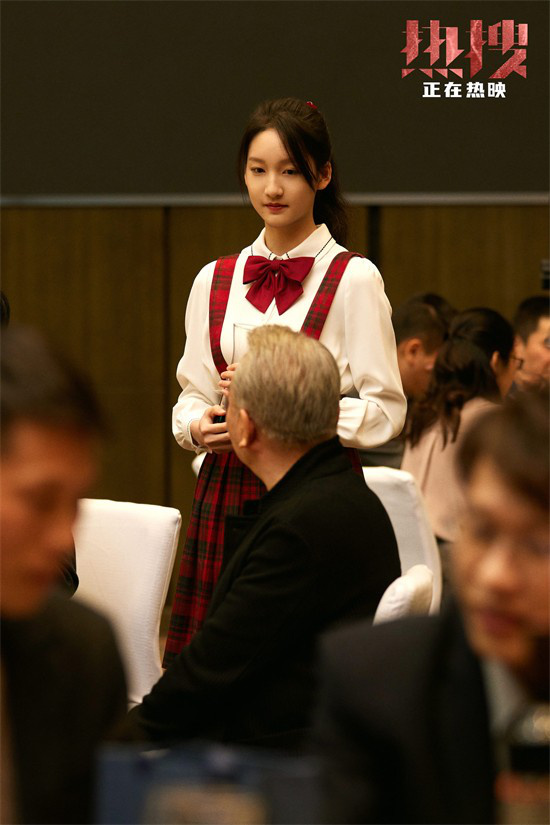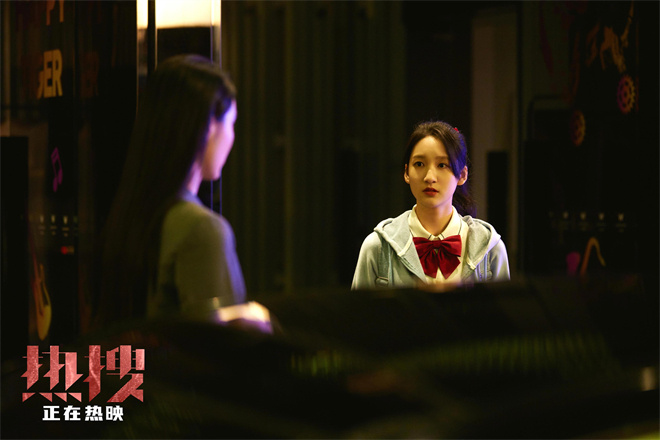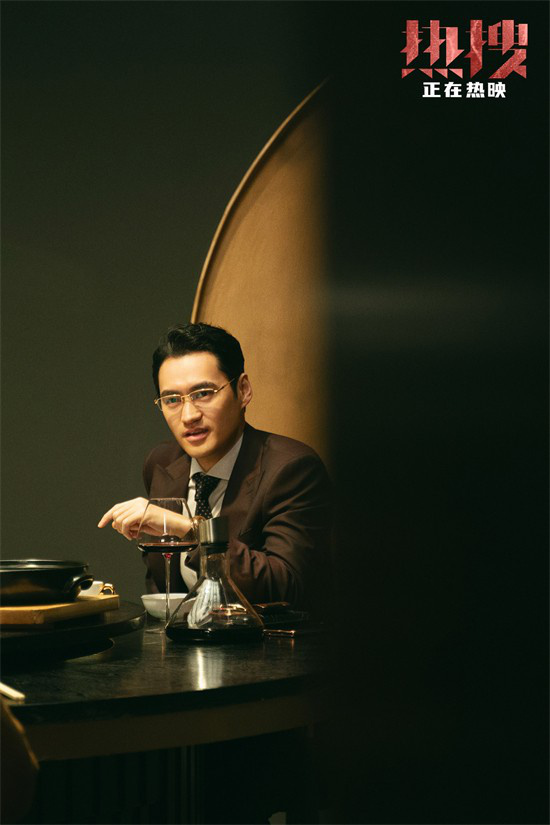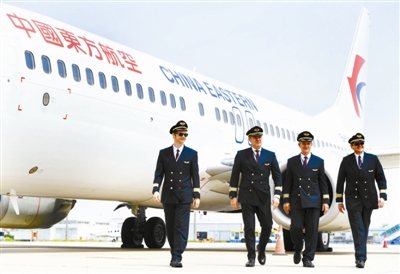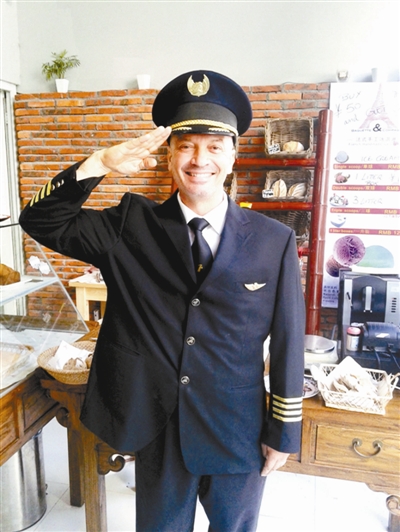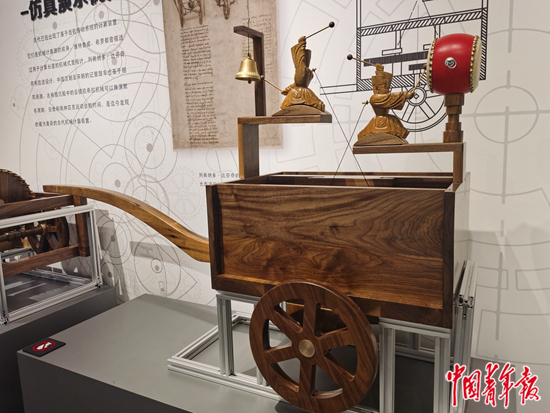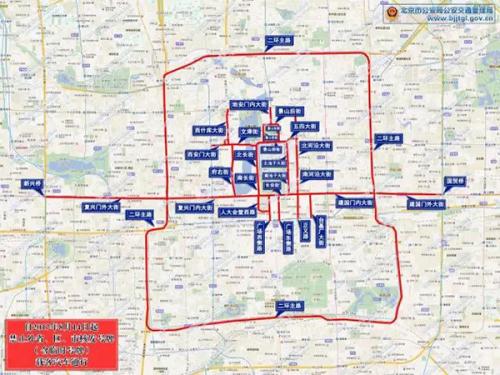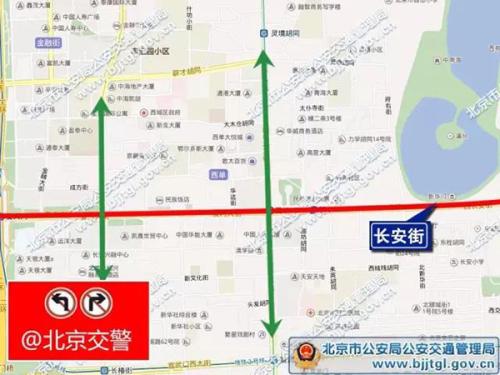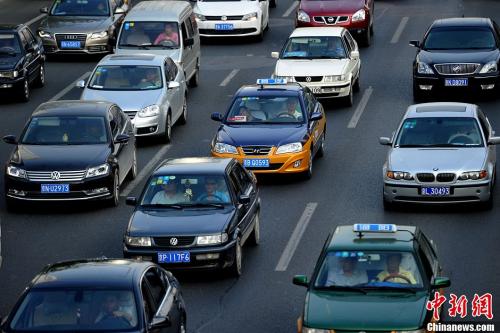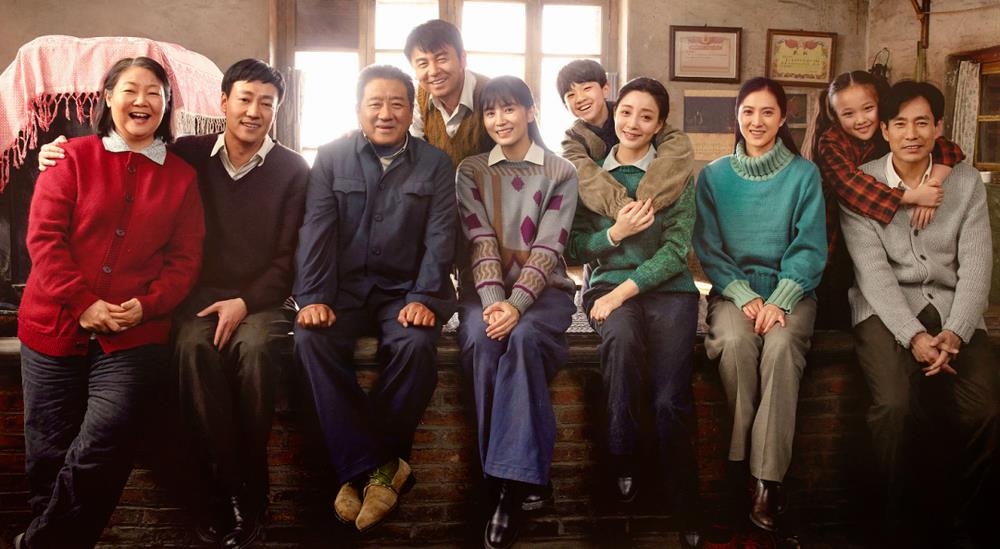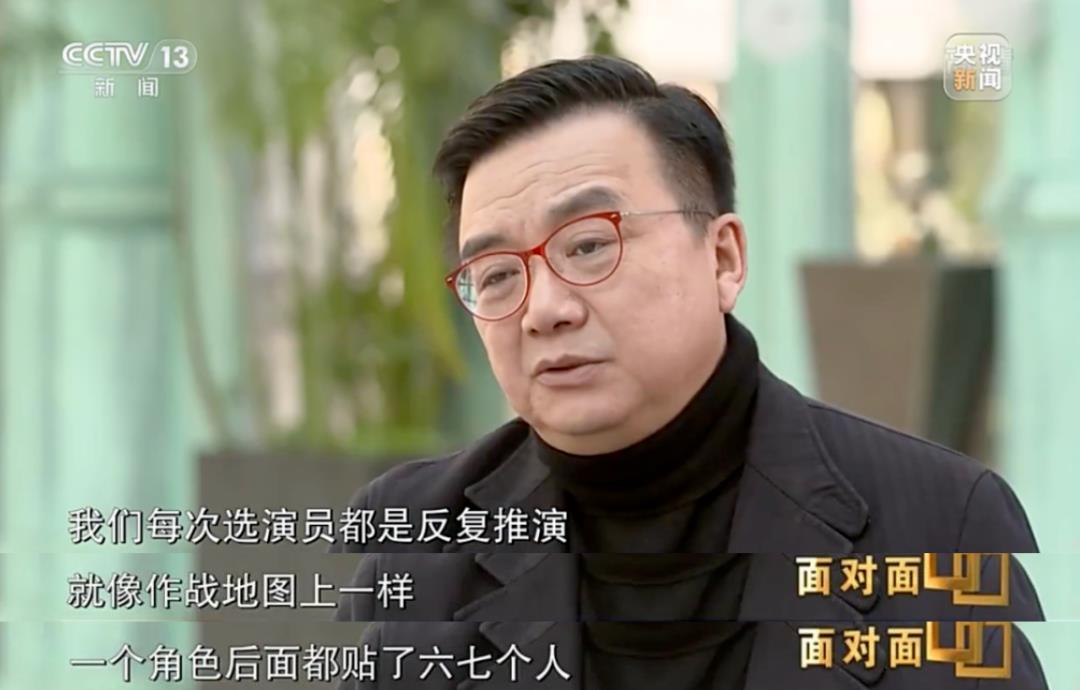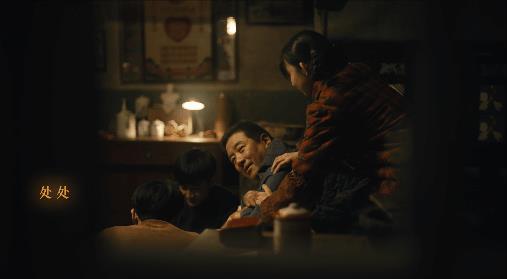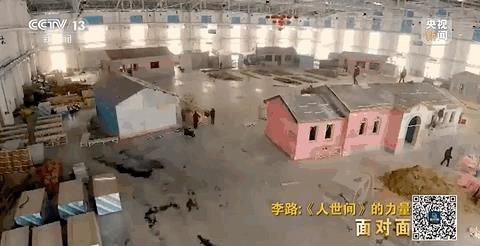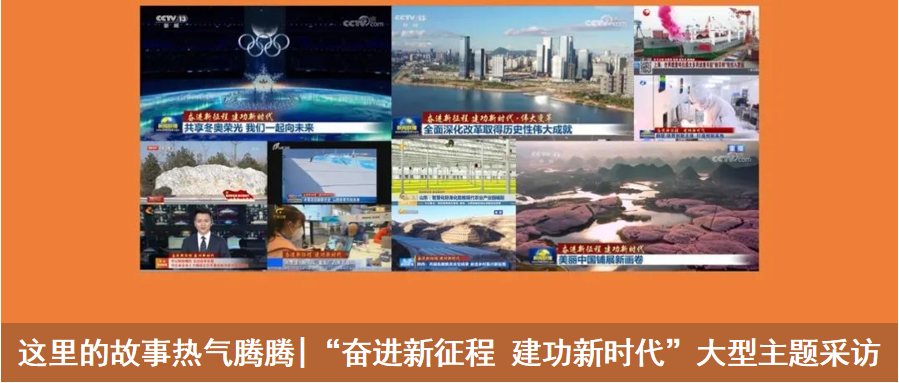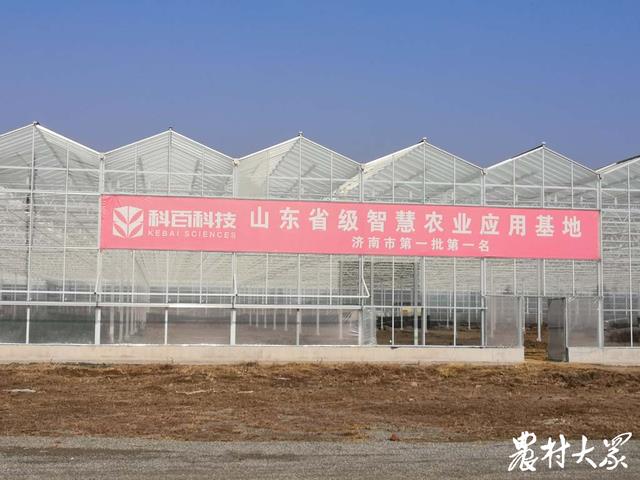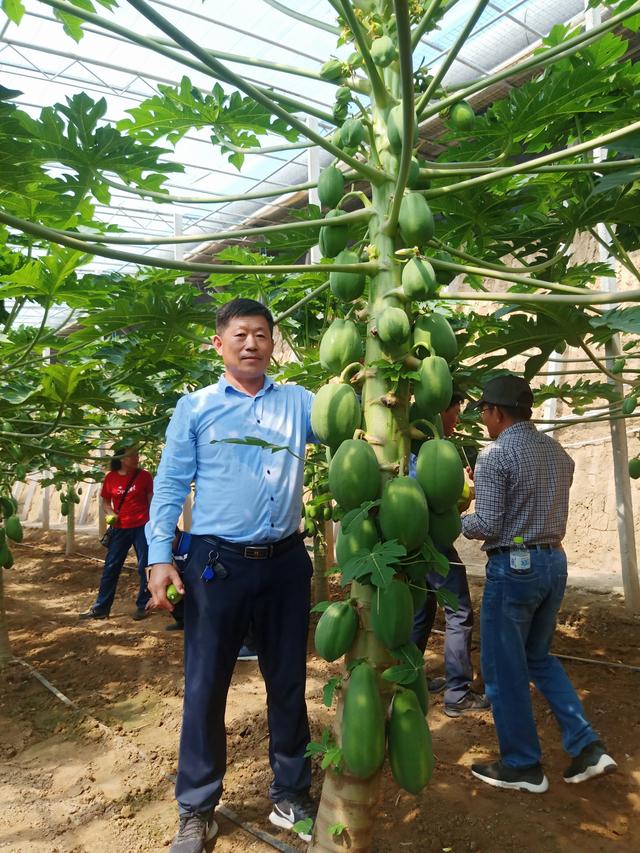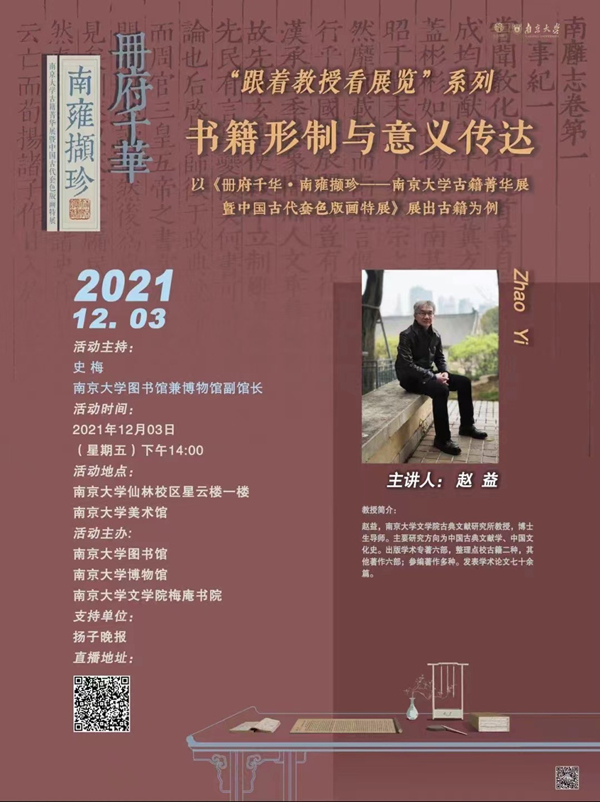
The Form and Meaning Transmission of Books
Time:14:00 on Friday, December 3rd.
Location:Yangtze Collection Live Platform (Link Address: http://appyangzi08jc.h5.ecolaw.cn/user/lesson/detail? lesson_id=20211202103105275206b118)
Speaker:Zhao Yi (Professor and Doctoral Supervisor, Institute of Classical Literature, School of Literature, Nanjing University)
Teacher Zhao Yi’s main research interests are China classical philology and China cultural history. In this lecture, he will take the ancient books displayed in "Qianhua Nanyong Collection of Treasures —— Nanjing University Ancient Books Exhibition and China Ancient Chromatic Prints Special Exhibition" as an example to talk about the book form and meaning transmission.
Peach Blossom in the Sound —— Online Reading Meeting of Jiangnan Trilogy
Time:December 3rd (Friday) 19:00-20:30.
Location:Himalayan APP· book island live broadcast room
Guest:Ge (writer, professor of Tsinghua Middle School), Yang Chen (voice actor), Shang Hong (actor).
A dream about "Peach Blossom Garden" depicts an island of dreams and broken dreams. In 2015, Ge Fei’s trilogy Jiangnan won the ninth Mao Dun Literature Prize with the highest number of votes; In 2021, the new classic combined with Himalaya, and once again interpreted this century-old drama of chasing dreams in Jiangnan with sound. On the evening of December 3rd, Teacher Ge Fei will visit the audio live broadcast room of the Himalayan "Book Island" to talk about the trilogy of Jiangnan with the presenters Yang Chen and Shang Hong, and see that the peach blossoms are still the same, listening to the mountains and rivers and dreaming.
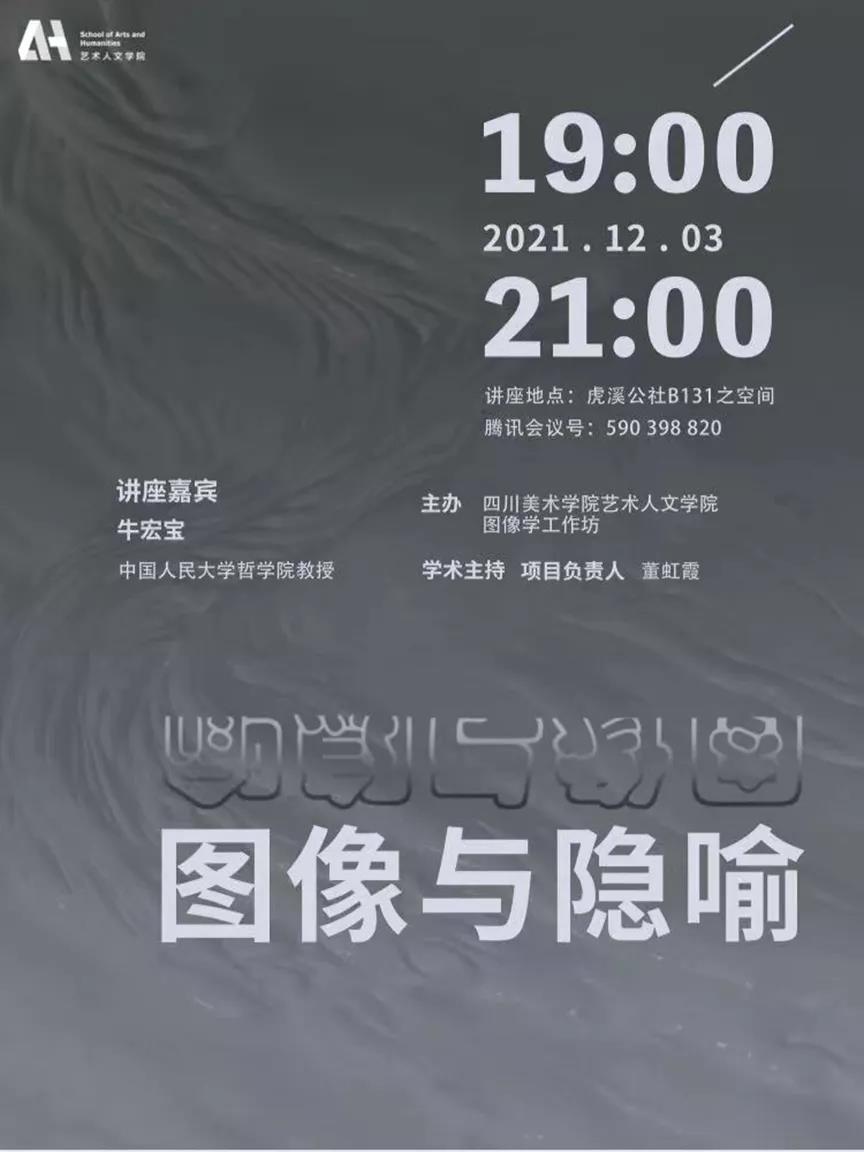
Images and Metaphors
Time:December 3rd (Friday) 19:00-21:00
Location:Tencent conference (ID: 590398820)
Speaker:Niu Hongbao (Professor and Doctoral Supervisor, School of Philosophy, China Renmin University)
Metaphor is used in vocabulary, language and images. Metaphor is not just a rhetoric, but a universal way to construct meaning. It can be said that metaphor is everywhere, whether it is daily language or images. So, what are the similarities and differences between lexical language metaphor and image metaphor? What are the types of image metaphors? And how does image metaphor work? These problems are the key to understanding image metaphor and the core of the operation of cutting into the meaning of images.
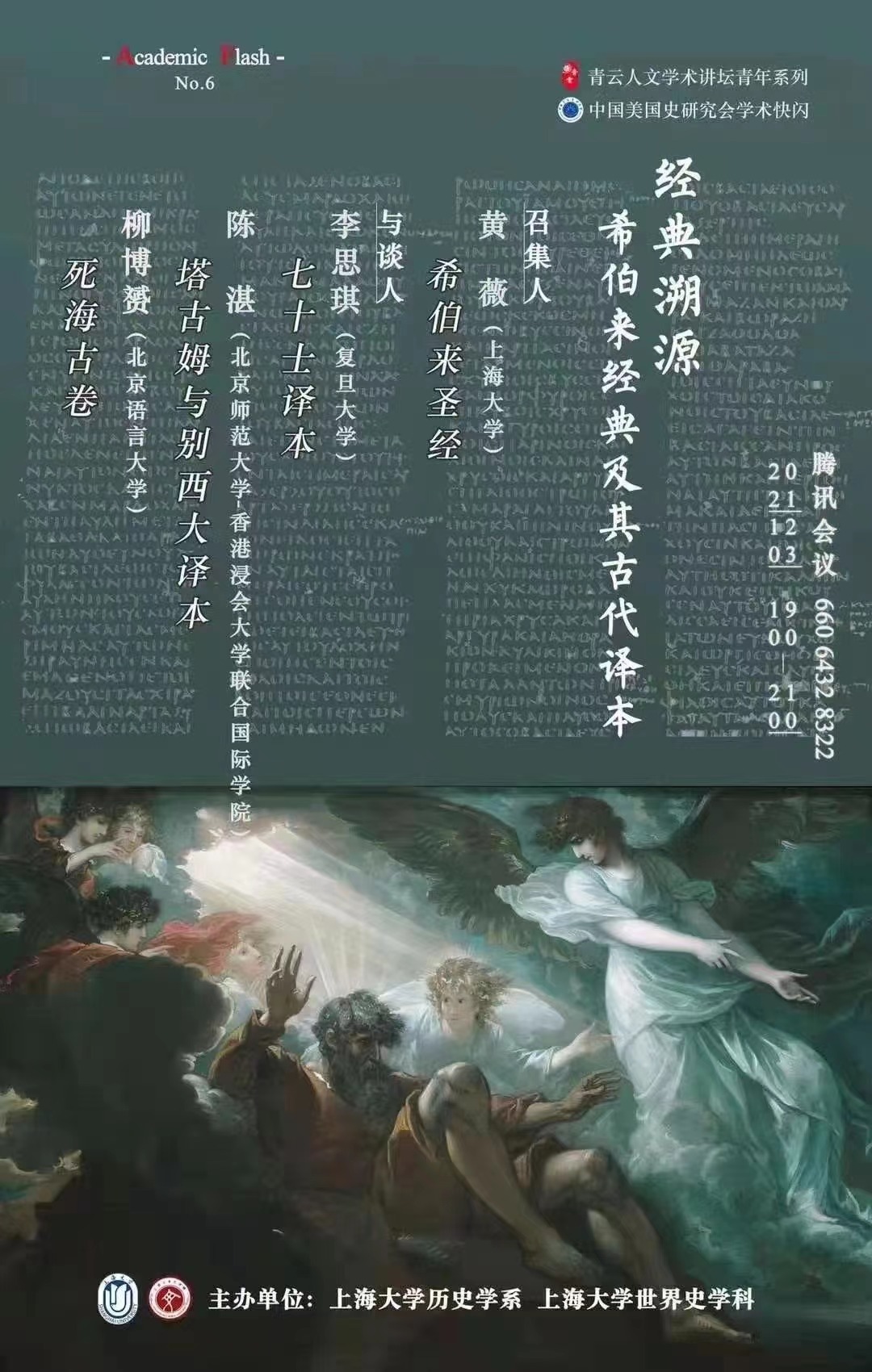
Tracing the Origin of Classics —— Hebrew Classics and Their Ancient Versions
Time:December 3rd (Friday) 19:00-21:00
Location:Tencent conference (ID: 66064328322)
Guest:Huang Wei (Lecturer, School of Literature, Shanghai University), Li Siqi (Associate Research Fellow, Department of World History, Fudan University), Chen Zhan (Beijing Normal University-Hong Kong Baptist University United International College), Liu Boyun (Teacher, beijing language and culture university Institute of Advanced Translation).
In this "Academic Flash" activity, four guests will talk about Hebrew classics and their ancient versions from the perspectives of Hebrew classics, lxx, Tagum and Besi translations, and the Dead Sea scrolls.
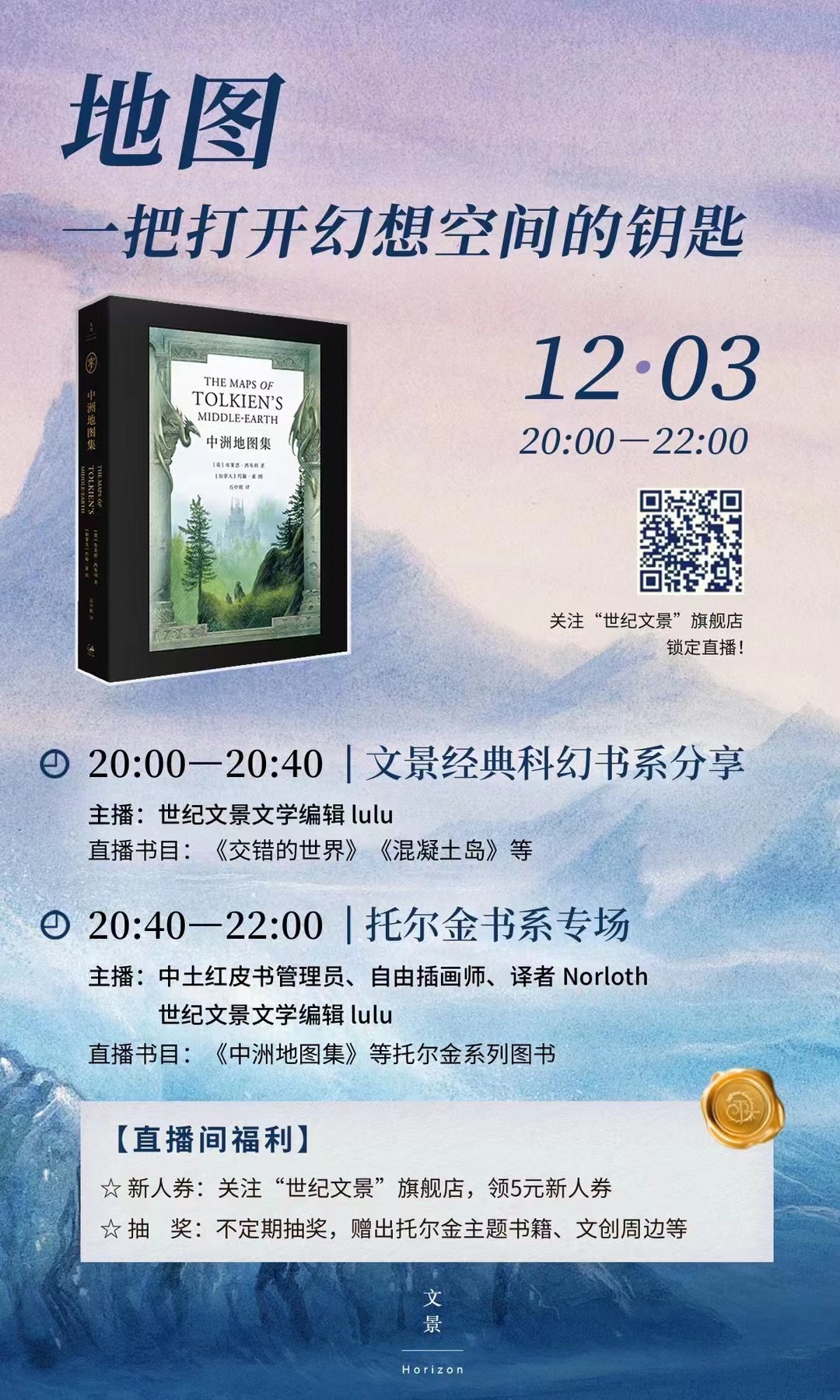
Map: A Key to Open Fantasy Space
Time:December 3rd (Friday) 20:00-22:00
Location:Tianmao century Wenjing flagship shop
Guest:Norloth (illustrator and translator), lulu (literary editor)
The Atlas of China, drawn by john howe, the conceptual designer of The Lord of the Rings’s The Hobbit series, is an indispensable collection-level graphic reference book for reading Tolkien. On the evening of December 3rd, we invited Norloth, the administrator, freelance illustrator and translator of China-Turkey Red Book, to be a guest in the live broadcast room of Century Wenjing Tmall flagship store, and together with lulu, editor of Zhongzhou Atlas, we talked about the fantasy world created by Tolkien from the atlas.
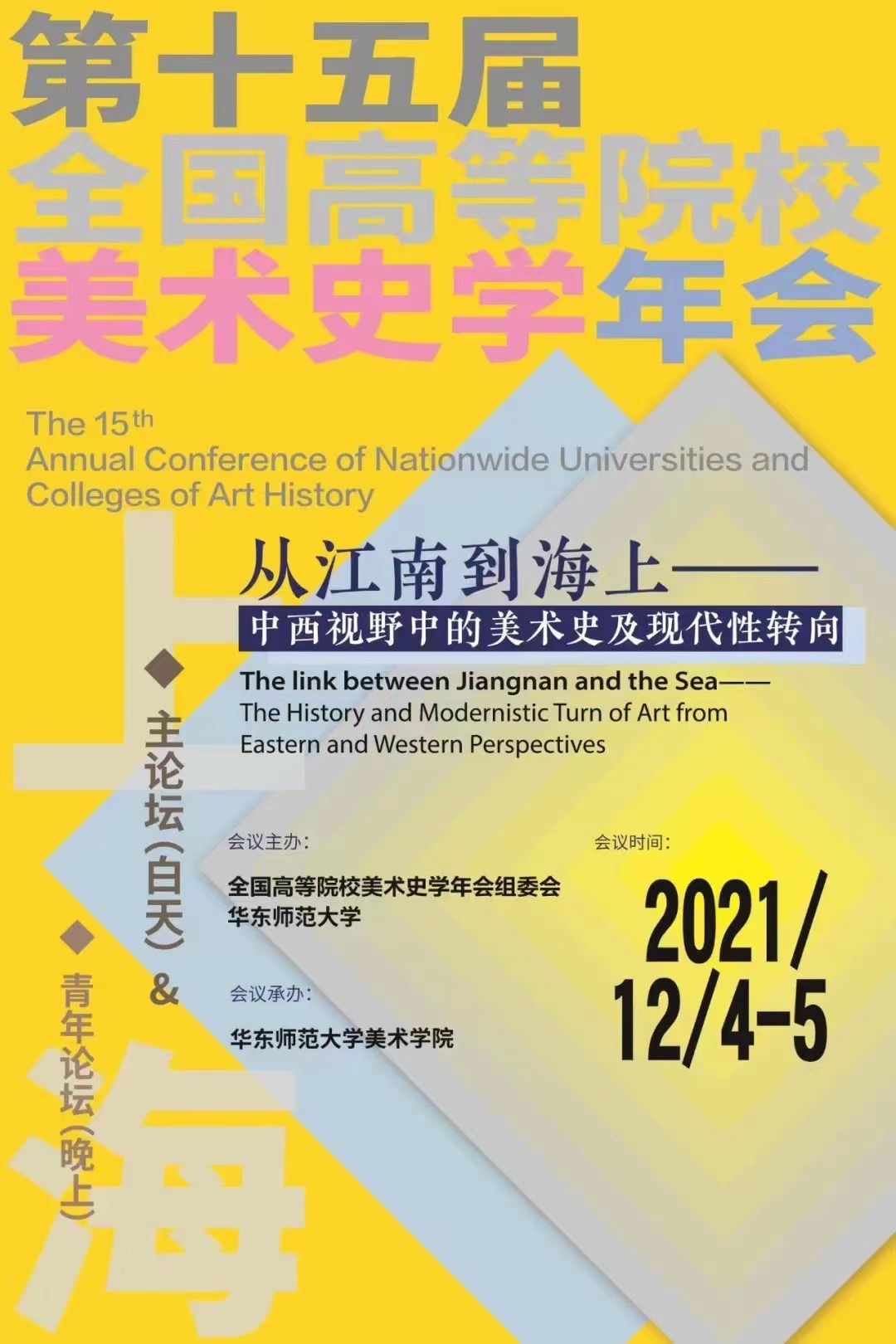
From Jiangnan to the Sea —— Art History and Modernity Turn from Chinese and Western Perspectives
Time:December 4th-5th at 8:30.
Location:Tencent Conference, Bili Bili (live room number: 23904061)
Guest:Li Jun (Dean of School of Humanities, Central Academy of Fine Arts), Zhang Xiaoling (Dean of School of Fine Arts, East China Normal University), Yang Bin (Professor of History Department, University of Macau) and Huang Xiaofeng (Professor of Central Academy of Fine Arts, Vice President of School of Humanities).
On December 4-5, the 15th National Academic Year Meeting of Art History in Colleges and Universities will be held with the theme of "From Jiangnan to the Sea-Art History and Modernity Turn in Chinese and Western Perspectives", which will be divided into main forums and youth forums, online and offline, and the participating guests will explore art history in Chinese and Western perspectives.
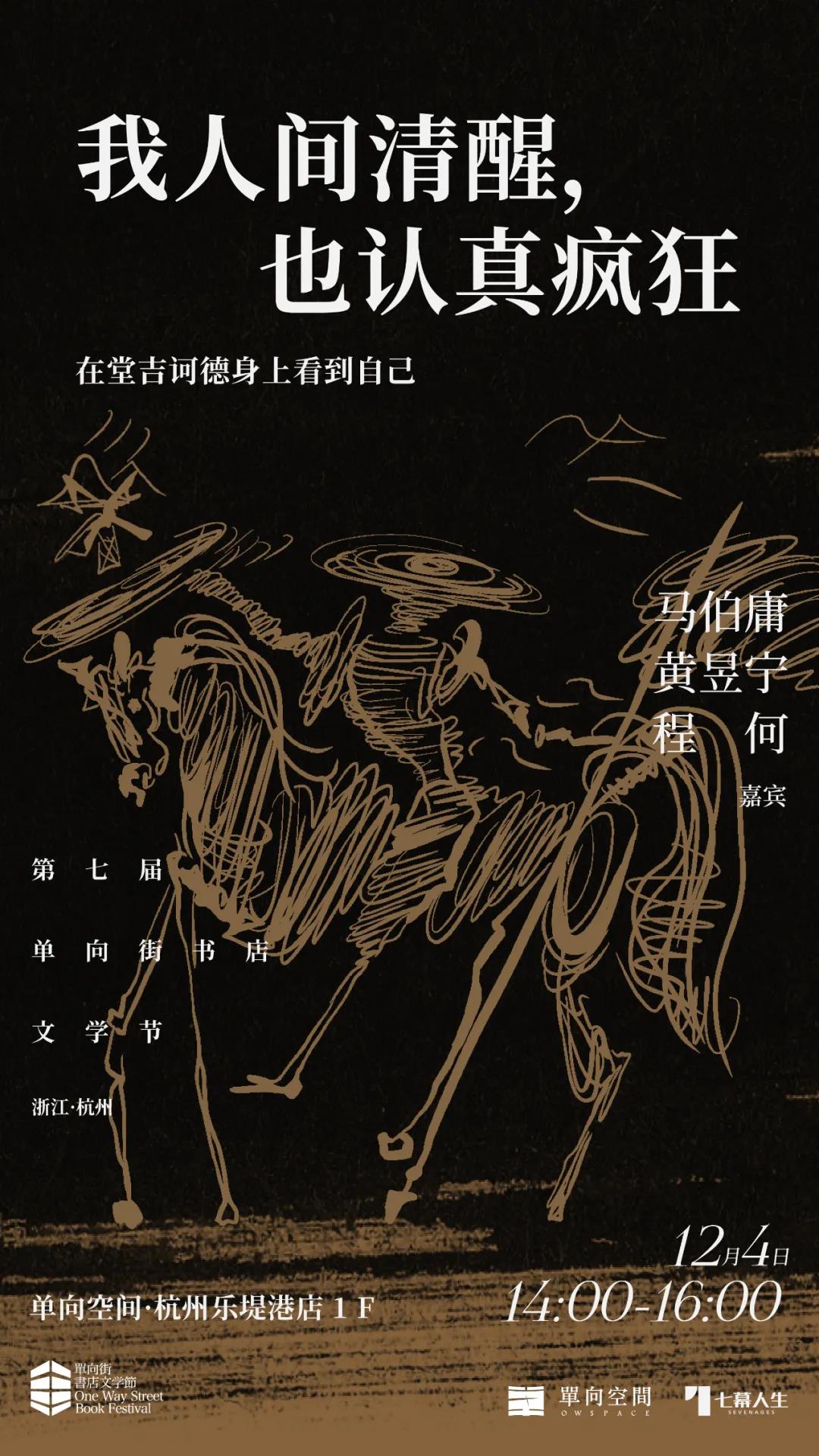
I am sober and seriously crazy-I see myself in Don Quixote.
Time:December 4th (Saturday) 14:00-16:00.
Location:"single read" wechat video number
Guest:Ma Boyong (writer), Huang Yuning (publisher, writer and translator) and Cheng He (author of drama structure).
The musical "I, Don Quixote", based on the novel "Don Quixote", has been performed for five years since it premiered on Broadway in 1965, creating a record of 2,329 consecutive performances. In 2012, the English version was introduced to China in seven acts, and the Chinese version was first introduced in 2015. In 2022, it will be the 10th anniversary of the premiere of this drama in China, and it will be re-arranged. During the 7th One-way Street Literature Festival, we invited Ma Boyong, a script consultant who participated in the creation of this musical, Cheng He, a writer of translation and drama structure, and Huang Yuning, a writer, to have a conversation, to talk about Don Quixote, a daydreaming knight of Quehanna, to talk about people who passed by in a night boat and walked on a long journey of life, and all those who were still obsessed with exploring the truth of life from the "The Impossible Dream".
The trend of rule of law in the modern world
Time:December 4th (Saturday) 14:30-17:30
Location:Live TV Geleshan Lecture Hall
Speaker:Cheng Liaoyuan (Professor and Doctoral Supervisor, School of Law, Chongqing University)
In recent 70 years, with the changes of the international community, there has been a remarkable wave of rule of law around the world. Countries from Europe to South America, from Africa to Asia, and the United Nations all claim to move towards the rule of law, and a worldwide era of rule of law is gradually coming. This magnificent wave of the rule of law is caused by many factors, including the construction of a modern country, the great changes in market economy and trade, science and technology, the protection of democracy and human rights, and the reflection and rescue of suffering and fear. Observing and analyzing these problems will provide us with a global perspective to understand the rule of law in China. Around these problems, we invited Professor Cheng Liaoyuan from Chongqing University Law School to visit Geleshan Lecture Hall to discuss and share with you.
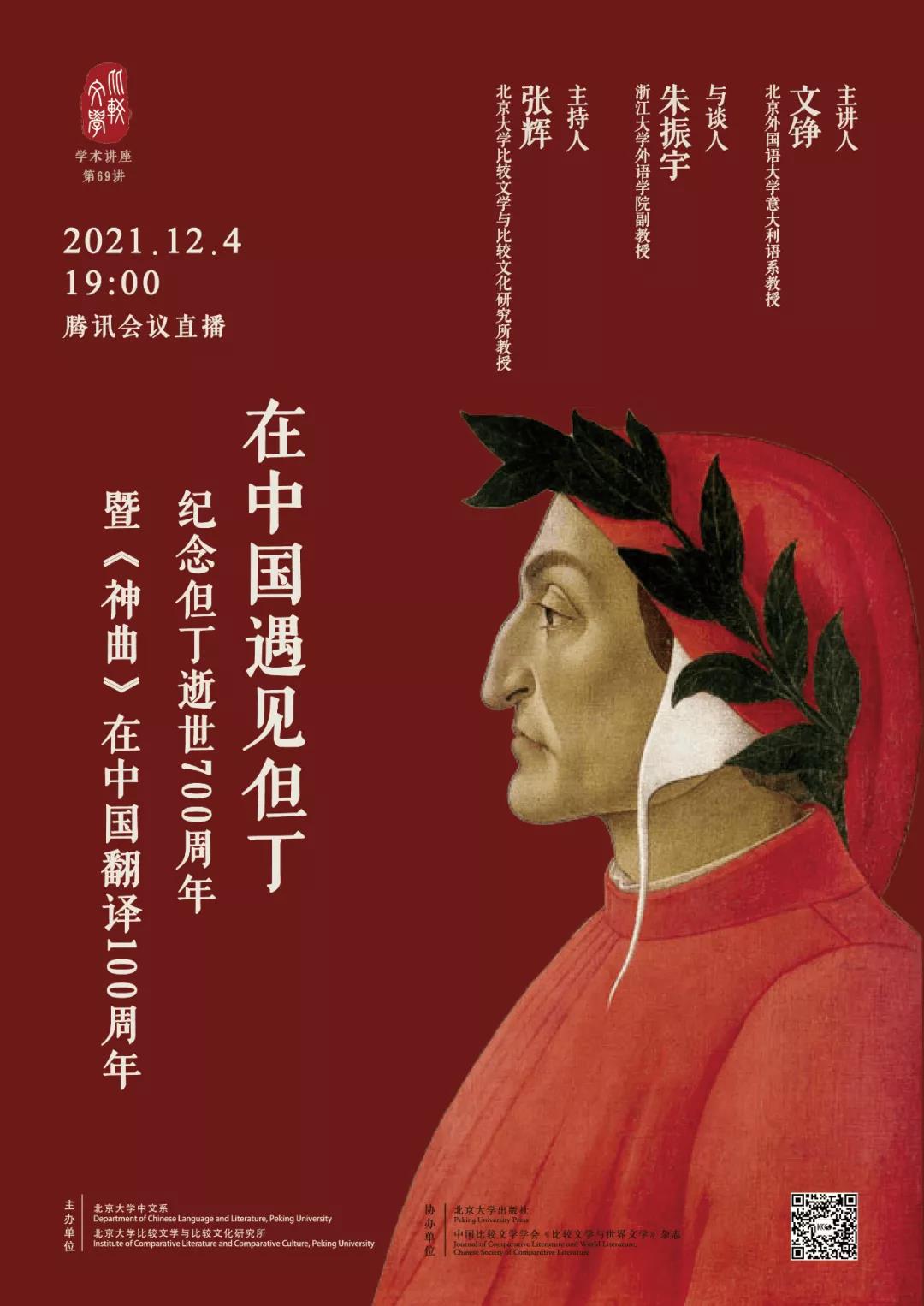
Meeting Dante in China —— Commemorating the 700th anniversary of Dante’s death and the centenary of the translation of The Divine Comedy in China
Time:December 4th (Saturday) at 19:00.
Location:Tencent Conference (Link: https://meeting.tencent.com/l/nOWYuIRLdtbh)
Speaker:Wen Zheng (Professor, Italian Department, Beijing Foreign Studies University)
In the history of western literature, Dante’s contribution and talent are incomparable, and his poem Divine Comedy is "the pinnacle of genius and hard work" (in Lao She’s words). Since the Florence poet died 700 years ago, knowing this 14,233-line long poem has become "the greatest happiness for literature" (in Borges) for many people. This year marks the 700th anniversary of Dante’s death, and all over the world are solemnly commemorating one of the greatest poets in human history in various forms. We are in China and Peking University, reading and discussing Dante is both a need and a responsibility.
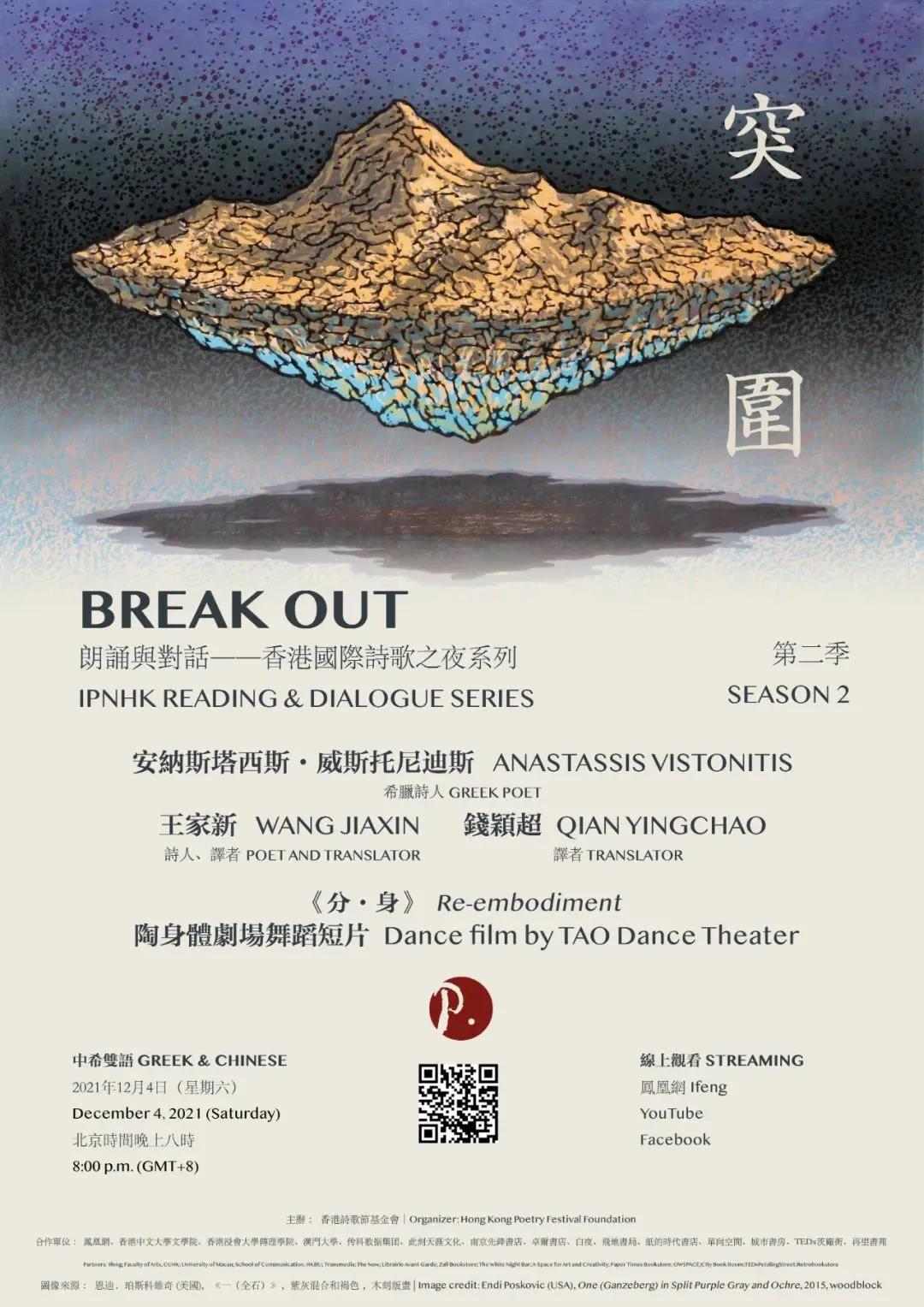
Breakthrough: Recitation and Dialogue —— International Poetry Nights in Hong Kong Series
Time:December 4 (Saturday) at 20:00
Location:Phoenix net
Guest:Anna Stasis Westernidis (poet), Wang Jiaxin (poet, poetry critic) and Qian Yingchao (lecturer, School of European Language and Culture, Beijing Foreign Studies University).
In the second season of International Poetry Nights in Hong Kong series, the Greek poet Anna Stasis Westernidis was invited to talk with China poet Wang Jiaxin and Qian Yingchao, a lecturer at the School of European Language and Culture of Beijing Foreign Studies University.
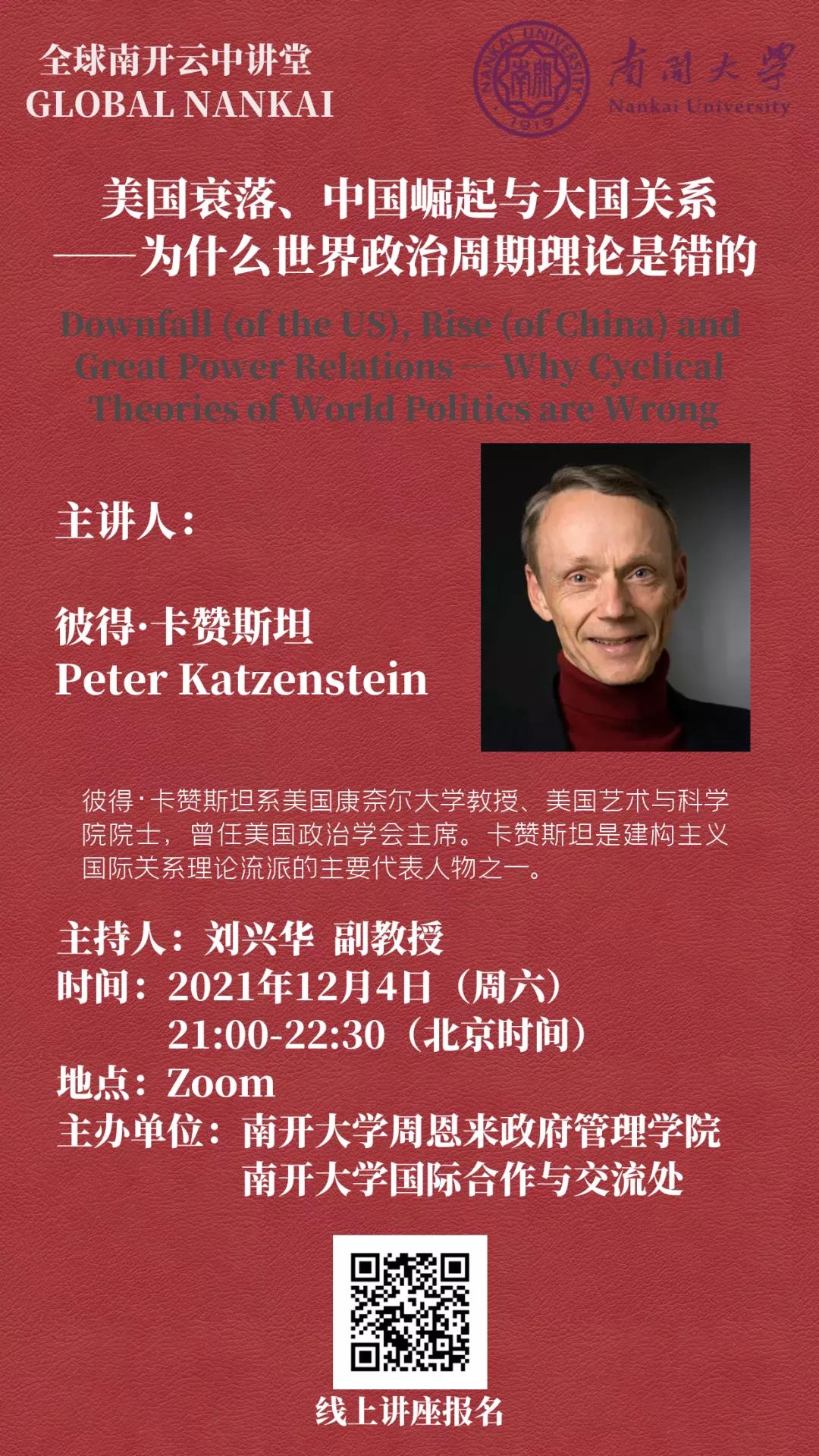
The Decline of the United States, the Rise of China and the Relationship between Great Powers —— Why the Theory of World Political Cycle is Wrong?
Time:December 4th (Saturday) 21:00-22:30.
Location:ZOOM conference
Speaker:Peter Katzenstein (Professor at Cornell University, USA)
Nankai Yunzhong Lecture Hall invited Peter Katzenstein, a professor at Cornell University and an academician of the American Academy of Arts and Sciences, to have an online exchange. He will give a lecture on Sino-US relations and talk about why the theory of world political cycle is wrong.
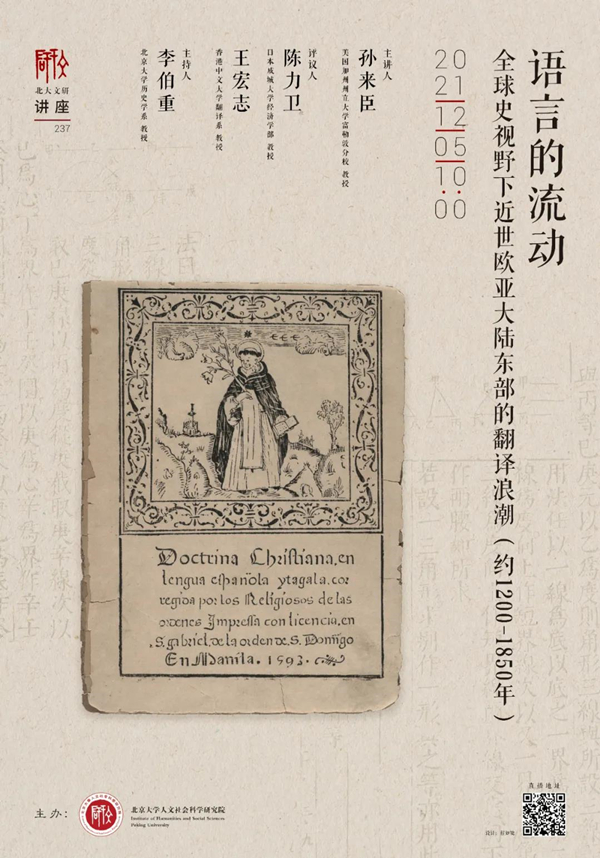
The Flow of Language —— The Translation Wave in Eastern Eurasia in Modern Times from the Perspective of Global History (about 1200-1850)
Time:December 5th (Sunday) at 10:00.
Location:ZOOM conference (ID: 81919525639)
Speaker:Sun Laichen (Professor of History, California State University, Fullerton, USA)
The study of global history mostly emphasizes the flow and dissemination of goods, people, technology and ideas, while this lecture focuses on the language flow (translation) that has always been neglected, aiming to explore the important role of translation activities in the eastern part of Eurasia (mainly including East Asia and Southeast Asia) from the breadth and depth of global history. The lecture not only emphasized the great promotion of the westward spread of the west wind to the east since the 16th century, but also paid more attention to the great influence of the internal vitality of Asia on the modern translation. This lecture will define "translation" as various forms of information conversion between words and languages from the broadest perspective, and deeply explore the translation forms that have been neglected for a long time.
Common Reading of Meiyuan Classics: Rosefinch by Ge Liang
Time:December 5 (Sunday) 15:00-17:30
Location:Tencent conference (ID: 998444278)
Guest:Ge Liang (writer), Zhang Juan (associate professor, School of Humanities, Southeast University) and Lin Peiyuan (writer).
This salon of Meiyuan Classic Reading Group will discuss and exchange the novel Suzaku written by Ge Liang for his city of life, Nanjing. Ge Liang will talk with Lin Peiyuan, a young writer, and Zhang Juan, a teacher from the School of Humanities of Southeast University. In their communication and interaction, we will feel the charm of Nanjing, a tolerant and generous city where old and new coexist.
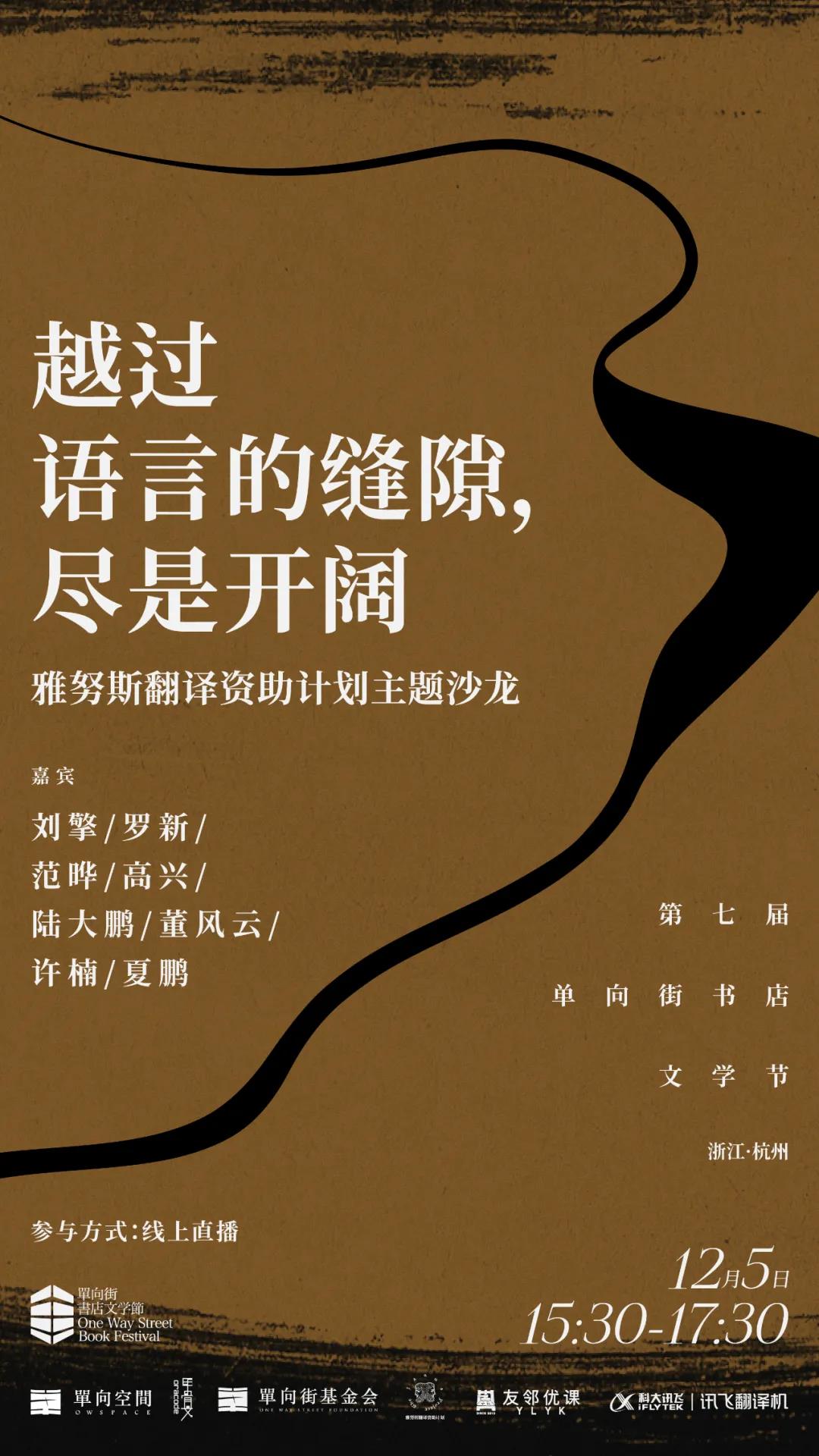
Crossing the language gap, it is all open —— Theme Salon of janus Translation Funding Scheme
Time:December 5 (Sunday) 15:30-17:30
Location:"single read" wechat video number
Guest:Liu Qing (distinguished professor, Zijiang, Ph.D. Supervisor, East China Normal University), Luo Xin (Professor of Ancient History Research Center and Department of History, China, Peking University), Fan Ye (Associate Professor and Translator, Peking University Foreign Studies University), Happy (Editor-in-Chief, Poet and Translator, World Literature), Dong Fengyun (Publisher) and Lu Dapeng (Translator).
In ancient Roman mythology, Janus had two faces, one facing the past and the other facing the future. He is in charge of the entrance and origin, as well as the exit and end, one after another, from beginning to end. In the world of literature, the translator is a "double-faced gatekeeper" like janus. In the summer of 2021, Oracle Bone Inscriptions and the One-way Street Foundation launched the first "janus Translation Funding Scheme", which is still under recruitment. During the 7th One-way Street Bookstore Literature Festival, we invited Dong Fengyun and Xu Nan, representatives of the sponsors of the janus Translation Funding Scheme, four judges of the funding scheme-Liu Qing, Fan Ye, Luo Xin, Xing Xin, English and German translator Lu Dapeng, and Xia Peng, the strategic supporter of the project, to talk about the behind of the scheme and the importance of building a more inclusive world through translation at present.
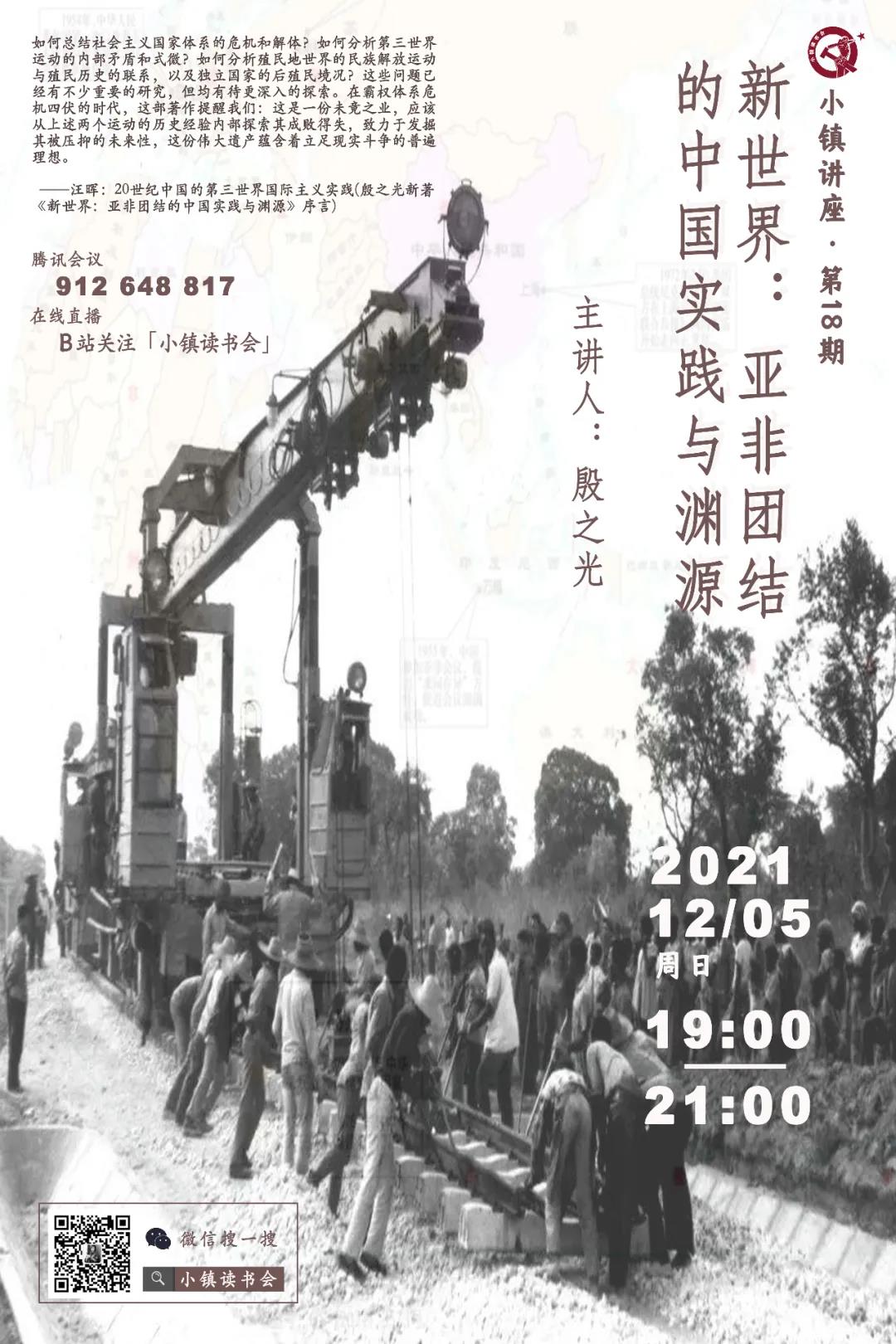
New World: China Practice and Origin of Asian-African Unity
Time:December 5 (Sunday) at 19:00
Location:Tencent Conference (ID: 912648817), Bili Bili Town Reading Club
Speaker:Yin Zhiguang (Professor, School of International Relations and Public Affairs, Fudan University)
In this issue, the town reading club is honored to invite Mr. Yin Zhiguang to share the theme around his new book, The New World: China’s Practice and Origin of Asian-African Unity.
Dunhuang studies from an international perspective: Dunhuang as historical materials and Dunhuang as space
Time:December 6 (Monday) at 20:30
Location:ZOOM conference (ID: 85768531693)
Guest:Lin Weizheng (Associate Professor, Department of Art History, University of Chicago, USA) and Maria L. Menshikova (Senior Research Fellow, Oriental Department, Russian hermitage museum)
The forum "Viewing Dunhuang-Mogao Grottoes and Yulin Grottoes in Roche Archives" jointly organized by Princeton University Press and Peking University Institute of Humanities and Social Sciences invited top scholars at home and abroad to talk about the application of Roche Archives in Dunhuang art, cultural sites and historical research, and the research opportunities it brought. In this lecture, Lin Wei, an associate professor in the Department of Art History at the University of Chicago, is discussing the internal spatial structure of Dunhuang Grottoes and its academic value. Maria L. Menshikova, a senior researcher in the Oriental Department of hermitage museum, Russia, will introduce the Dunhuang historical materials collected in Russia and their research value.
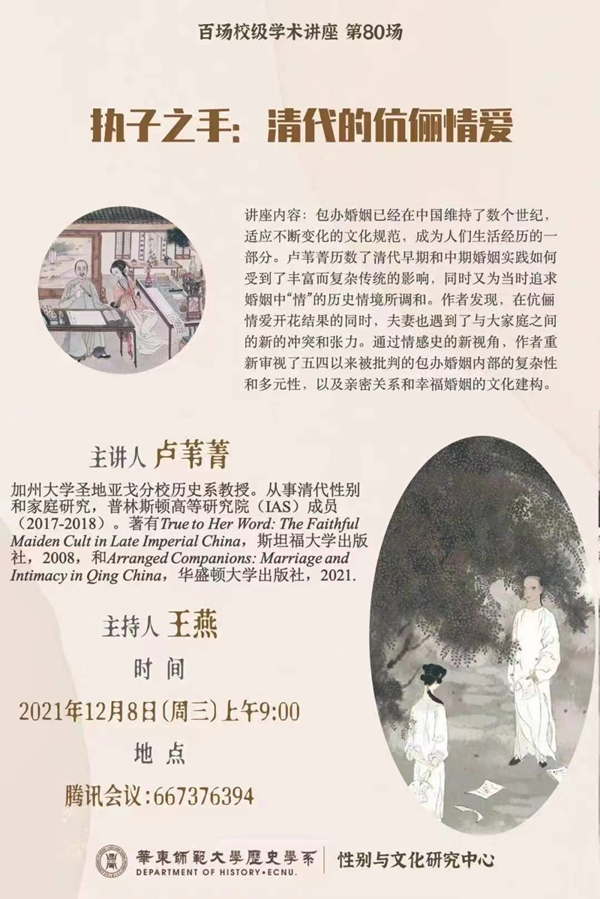
Holding your hand: the couple’s love in Qing Dynasty
Time:Wednesday, December 8th at 9:00.
Location:Tencent conference (ID: 667376394)
Speaker:Lu Weijing (Professor, Department of History, University of California, San Diego)
Arranged marriage has been maintained in China for centuries, adapting to changing cultural norms and becoming a part of people’s life experience. Lu Weijing recounted how the marriage practice in the early and middle Qing Dynasty was influenced by rich and complex traditions, and at the same time was reconciled by the historical situation of pursuing "love" in marriage at that time. Lu Weijing found that while the couple’s love blossomed, the couple also encountered new conflicts and tensions with the extended family. From a new perspective of emotional history, Lu Weijing re-examined the complexity and diversity of arranged marriage criticized since the May 4th Movement, as well as the cultural construction of intimate relationship and happy marriage.
Attachment: Preview of offline activities
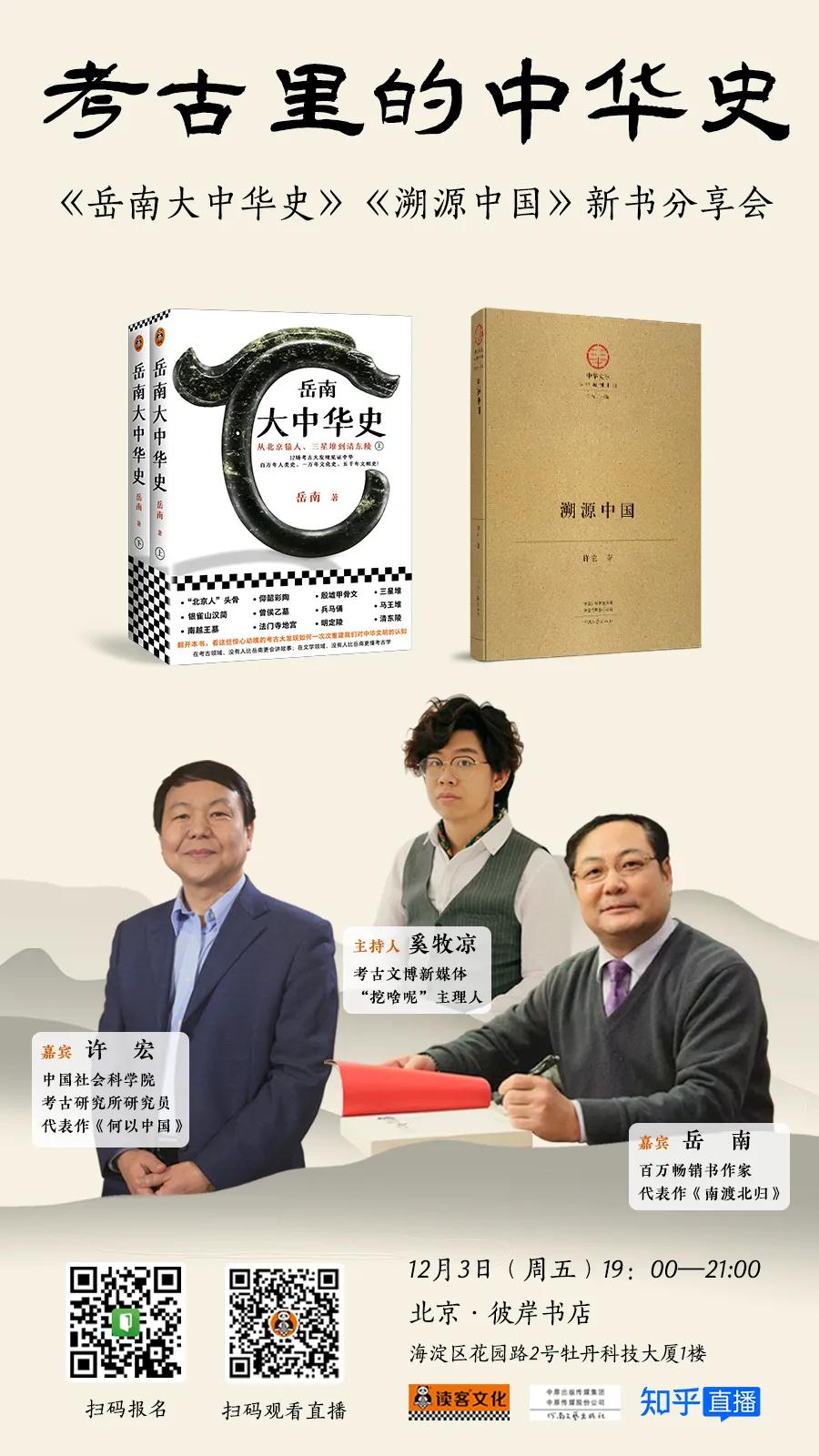
Beijing | Chinese History in Archaeology —— Sharing Meeting of New Books of Chinese History of Yuenan University and Tracing Back to China
Time:December 3rd (Friday) 19:00-21:00
Location:Bi ‘an Bookstore, 1st Floor, Mudan Science and Technology Building, No.2 Huayuan Road, Haidian District
Guest:Yue Nan (best-selling author) and Xu Hong (researcher, Institute of Archaeology, Chinese Academy of Social Sciences)
Since the birth of modern archaeology in 1921, major archaeological discoveries have blossomed everywhere, rebuilding our understanding of Chinese civilization every time. Through 12 archaeological discoveries, "Yuenan University’s History of China" witnessed China’s million-year human history, 10,000-year cultural history and 5,000-year civilization history! On the evening of December 3rd, Yue Nan and Xu Hong will start from Erlitou and Sanxingdui to talk about "Chinese History in Archaeology".
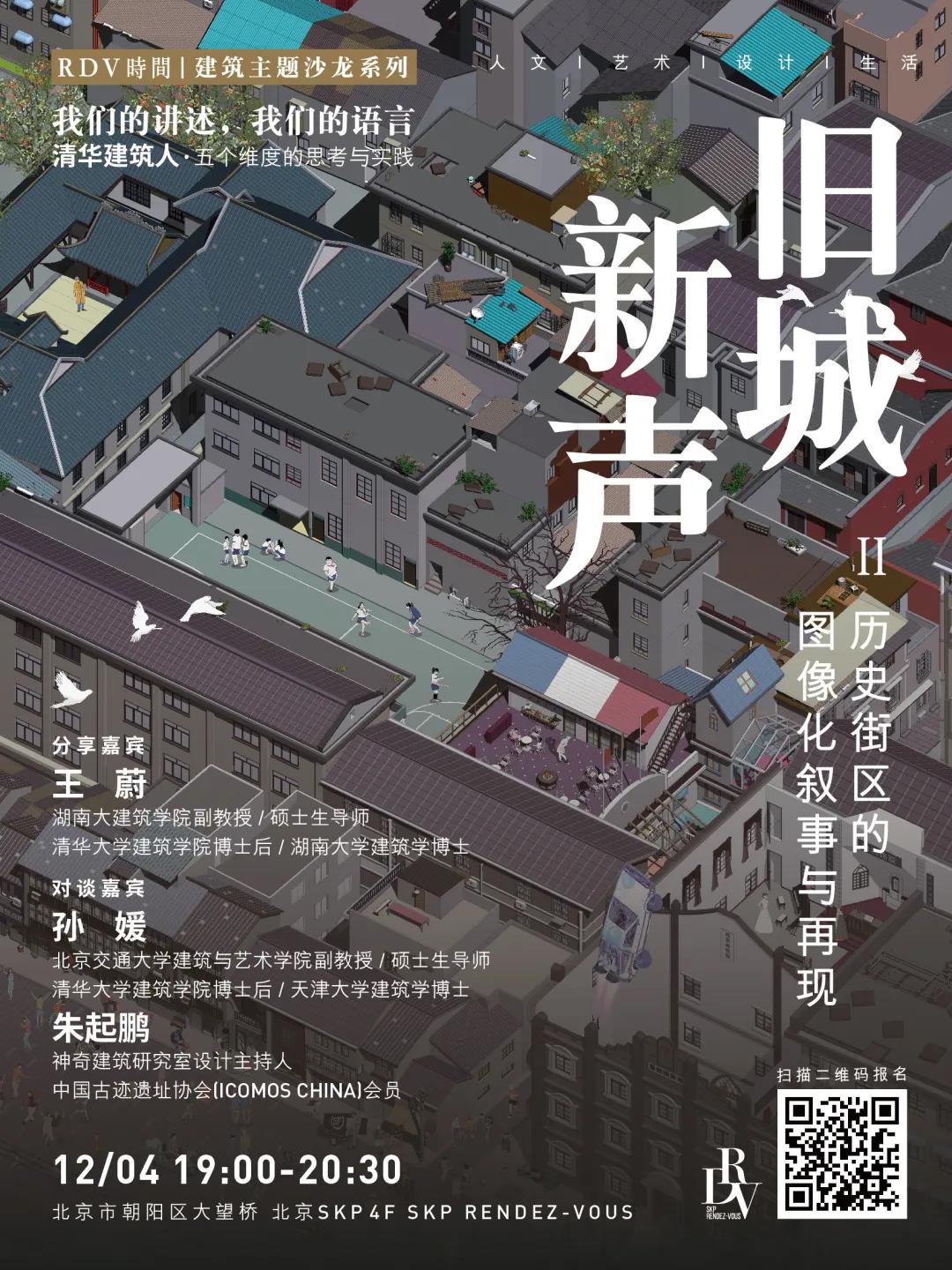
Beijing | Old City, New Sound —— Pictorial Narration and Reproduction of Historical Blocks
Time:December 4th (Saturday) 19:00-20:30
Location:SKP RENDEZ-VOUS, 4th floor, Beijing SKP Shopping Center, No.87 Jianguo Road, Chaoyang District
Guest:William Wang (Associate Professor and Master Supervisor of Hunan University of Architecture), Sun Yuan (Associate Professor and Master Supervisor of School of Architecture and Art of Beijing Jiaotong University) and Zhu Qipeng (Architect and Design Moderator of Magic Architecture Research Room).
On the evening of December 4th, we invited three architects, William Wang, Sun Yuan and Zhu Qipeng, to visit SKP in Beijing. The three guests will listen to the new sound of history together with the readers from the perspectives of urban renewal in Chaozong Street in Changsha, modern parks from the perspective of multi-culture and the study of Qianmen Street in Beijing!
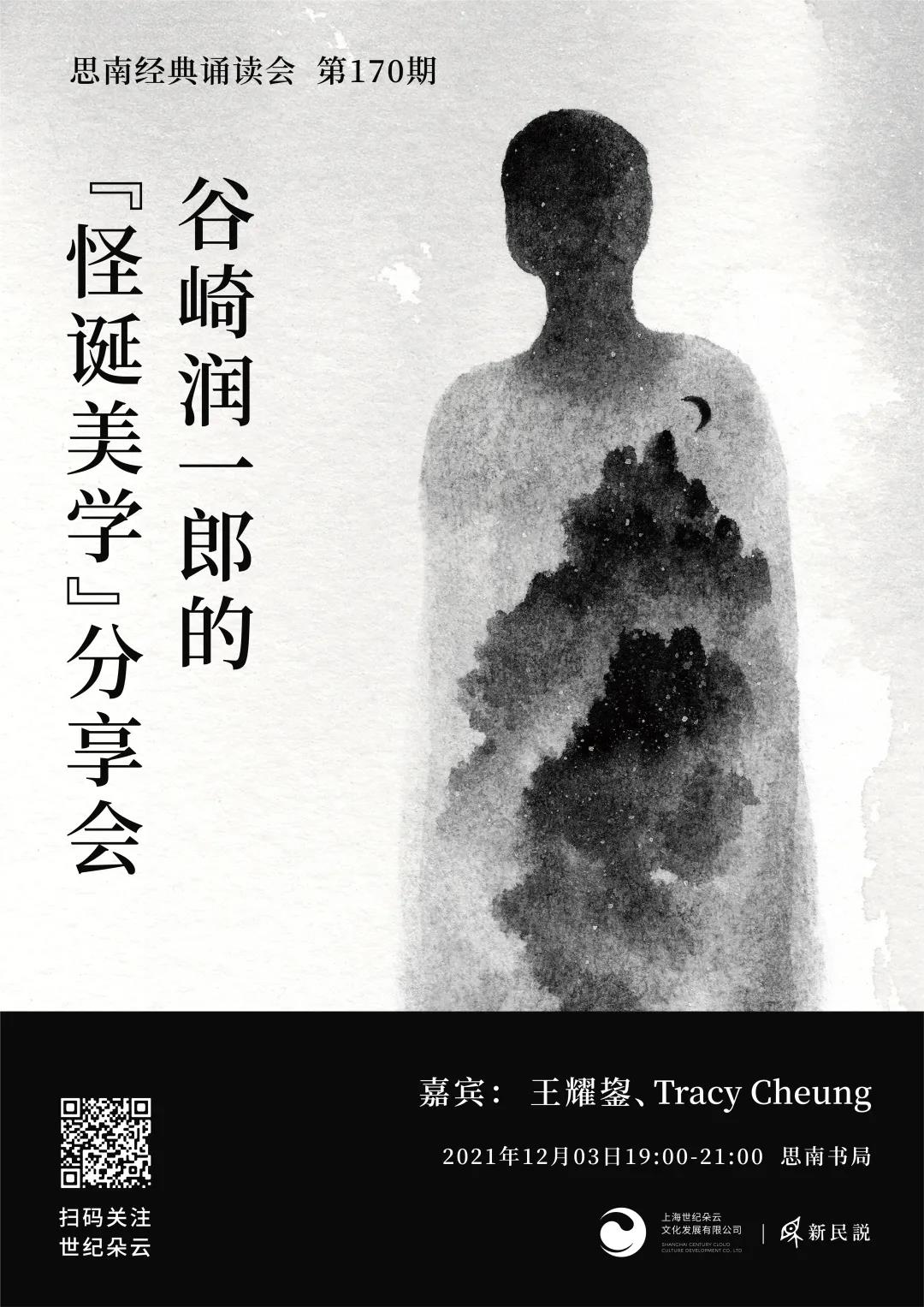
"Weird Aesthetics" Sharing Meeting in Shanghai | Junichiro Tanizaki
Time:December 3rd (Friday) 19:00-21:00
Location:Sinan Bookstore, No.517 Fuxing Middle Road, Huangpu District
Guest:Wang Yao Yan (novelist, screenwriter), Tracy Cheung (artist)
Junichiro Tanizaki, who is good at writing long stories, is equally wonderful in short stories. We invited scholar Wang Yao Yan and independent designer Tracy Cheung to talk about the beauty of Tanizaki’s words. From Tattoo, a rare work, to The Cursed Script, a mystery literature, or Genjyo Sanzo, which is full of wonderful fantasies, human nature is subtle and tortuous in different periods and different themes. This paper interprets how Tanizaki found another way to reach the true nature under depression, depression and pain.
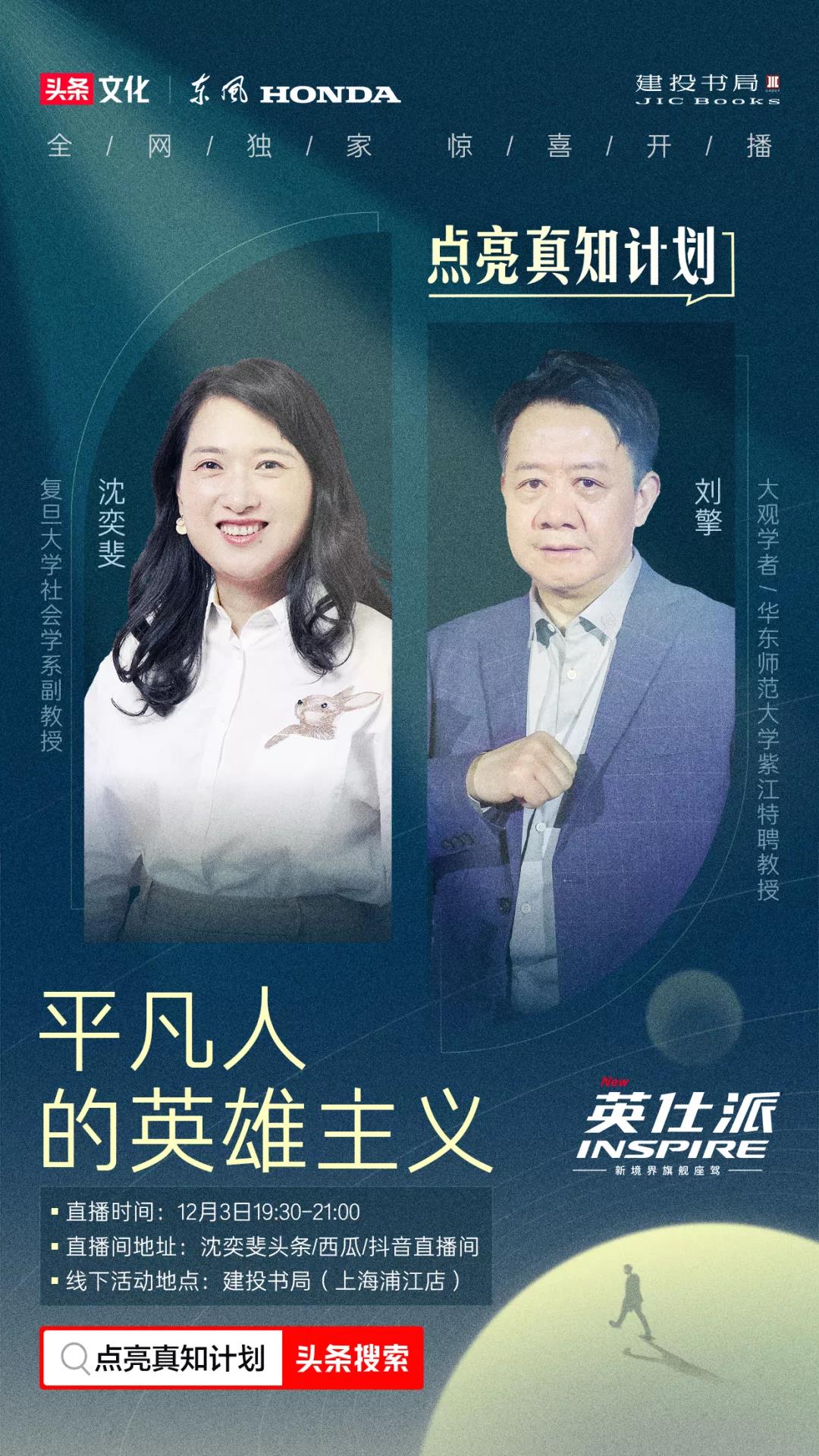
Shanghai | Heroism of Ordinary People
Time:December 3rd (Friday) 19:30-21:00
Location:Building a bookstore on the first floor of Jiayu Building, Building 8, No.18 Gongping Road, Hongkou District
Guest:Liu Qing (distinguished professor, Zijiang, East China Normal University, doctoral supervisor) and Shen Yifei (Associate Professor, School of Social Development and Public Policy, Fudan University)
Looking at the present, the relationship between major powers is changing, international epidemics are raging, and social anxiety is spreading … The truth of life is often cruel. How can ordinary you and I seek our own "small fortune" in the surging waves of the times? As individuals, do we also have heroism belonging to ordinary people? On the evening of December 3rd, we invited Liu Qing, a scholar of Daguan, Zijiang distinguished professor of East China Normal University, and Shen Yifei, an associate professor of sociology at Fudan University, to visit Jiantou Bookstore and Shanghai Pujiang Store to talk about the heroism of ordinary people.

Shanghai | Daily life is a miracle —— The journey of the soul in The Guardian of Lies
Time:December 4th (Saturday) 14:00-16:00.
Location:Pudong Library Rong Study Room, 3rd Floor, No.150 Pucheng Road, Pudong New Area
Speaker:Liang Yongan (Professor, Chinese Department, Fudan University)
Emanuel Bergmann is a cutting-edge German writer. The Guardian of Lies is his first novel, which takes us to Prague in the early 20th century, just like a "spiritual adventure". On Saturday afternoon, Liang Yong ‘an, a doctor of literature and a humanist at Fudan University, will be a guest at Lujiazui Reading Club, and start a spiritual journey with readers that spans the times, regions and generations.
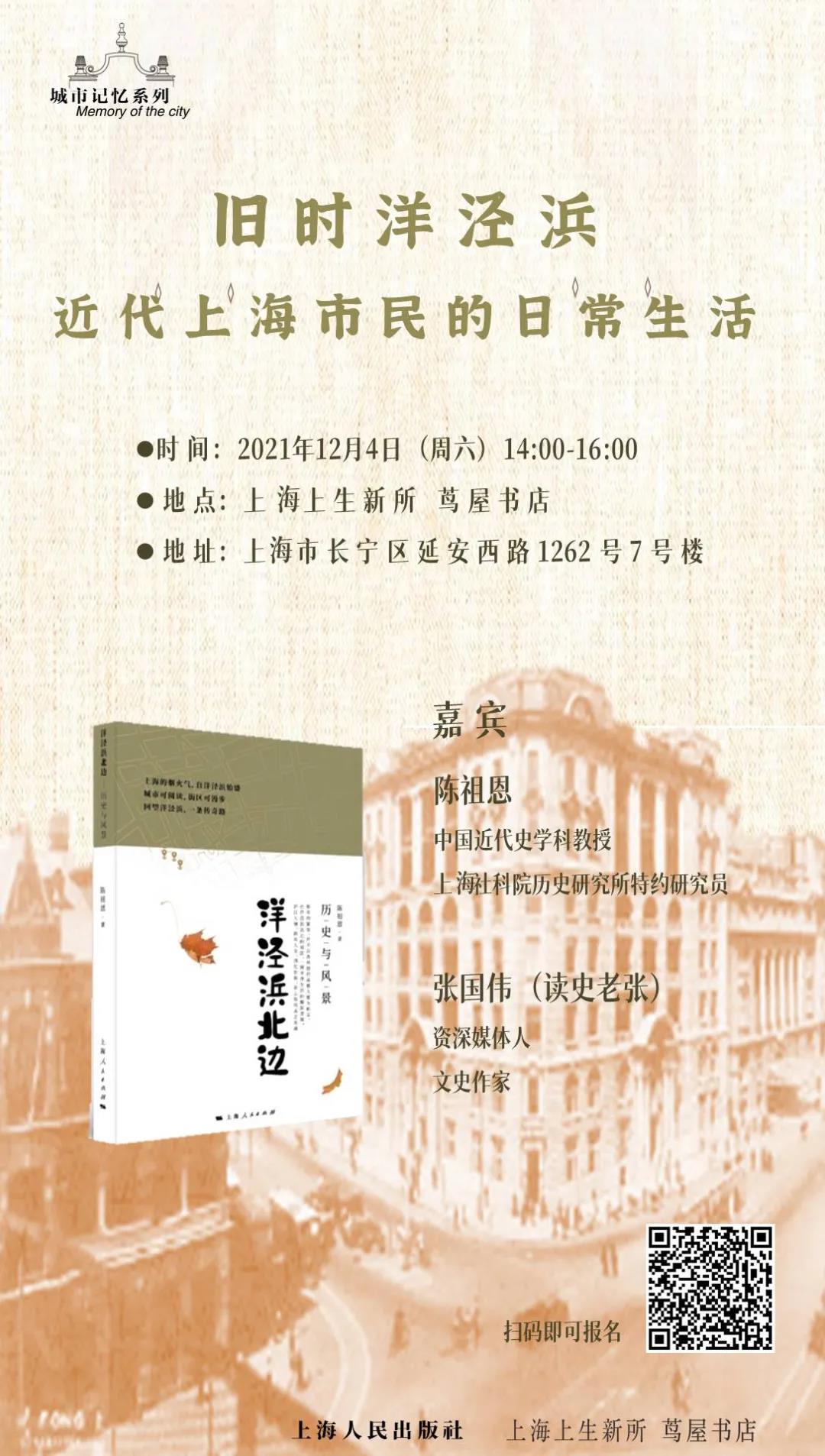
Shanghai | Old Pidgin: Daily Life of Modern Shanghai Residents
Time:December 4th (Saturday) 14:00-16:00.
Location:No.1262, Yan ‘an West Road, Changning District, No.7, Building No.7, Shangsheng New Institute, Renwu Bookstore
Guest:Chen Zuen (scholar of modern history in China, special researcher of Institute of History, Shanghai Academy of Social Sciences), Zhang Guowei (media person, writer of literature and history).
"Pidgin" is a special image in modern Shanghai and an important cultural symbol of Shanghai culture. On Saturday, we invited Chen Zuen, a professor of modern history in China, a special researcher at the Institute of History of Shanghai Academy of Social Sciences, and Zhang Guowei, a famous writer of literature and history. The two teachers will lead us to visit the urban humanities and appreciate the modern history, discover the first big Japanese trading company that entered Shanghai through the old masonry scenery, and pursue the famous place of Sino-Japanese cultural exchange in the late Qing Dynasty and the western restaurant that led the Shanghai atmosphere …
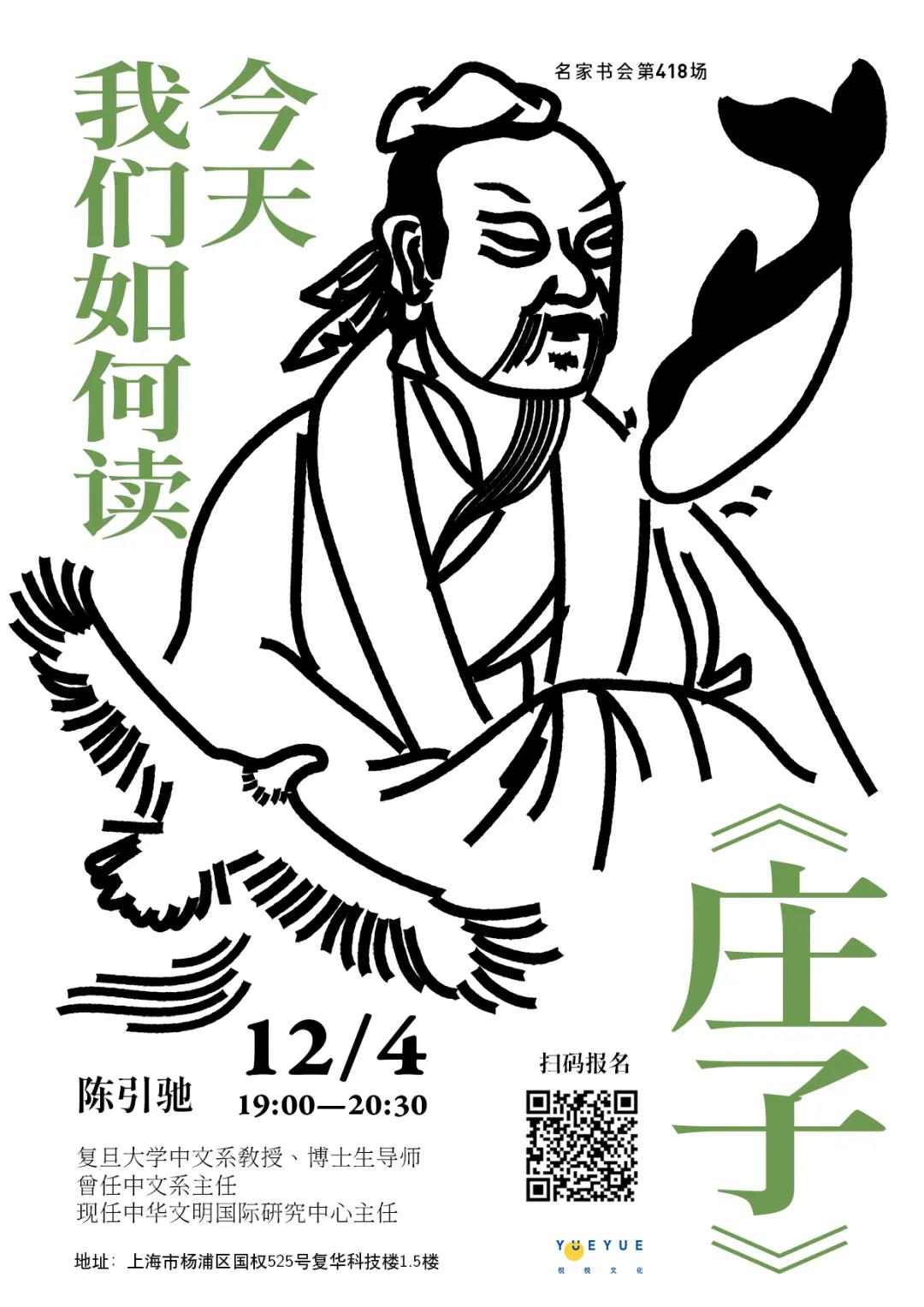
Shanghai | How do we read Zhuangzi today?
Time:December 4th (Saturday) 19:00-20:30
Location:Zhida Bookstore, Floor 1.5, Fuhua Science and Technology Building, No.525 Guoquan Road, Yangpu District, Activity Space
Speaker:Chen Yinchi (Professor, Chinese Department, Fudan University)
As an eternal motif in China’s traditional literature and thoughts, the magnificent Kunpeng, wonderful fables and profound thoughts in Zhuangzi have participated in shaping the spiritual world of China people for more than two thousand years. So, is it still suitable for us today, and can the wisdom in the book still enlighten us today? On Saturday night, let’s listen to Professor Chen Yinchi.
Shanghai | Sharing Meeting of "Heart Following Xinghai to Nature —— Environmental Explanation of the Source Region of the Yellow River in Sanjiangyuan National Park"
Time:December 5 (Sunday) at 14:00
Location:Hongkou Branch, Commercial Press, 3rd Floor, 1925 Bookstore, No.856 Sichuan North Road, Hongkou District
Speaker:Yong Yi (environmental education scholar)
On October 12, 2021, China officially announced the establishment of the first batch of national parks such as Sanjiangyuan, Giant Panda, Northeast Tiger Leopard, Hainan Tropical Rainforest and Wuyishan. What is a national park? What is the difference between a national park and a national forest park or a wetland park? Why did China start the construction of national parks today? How to take a day trip? This Sunday afternoon, meet with "1925 Bookstore", and Yong Yi, former director of environmental education program of World Wide Fund for Nature (WWF), will chat with you!
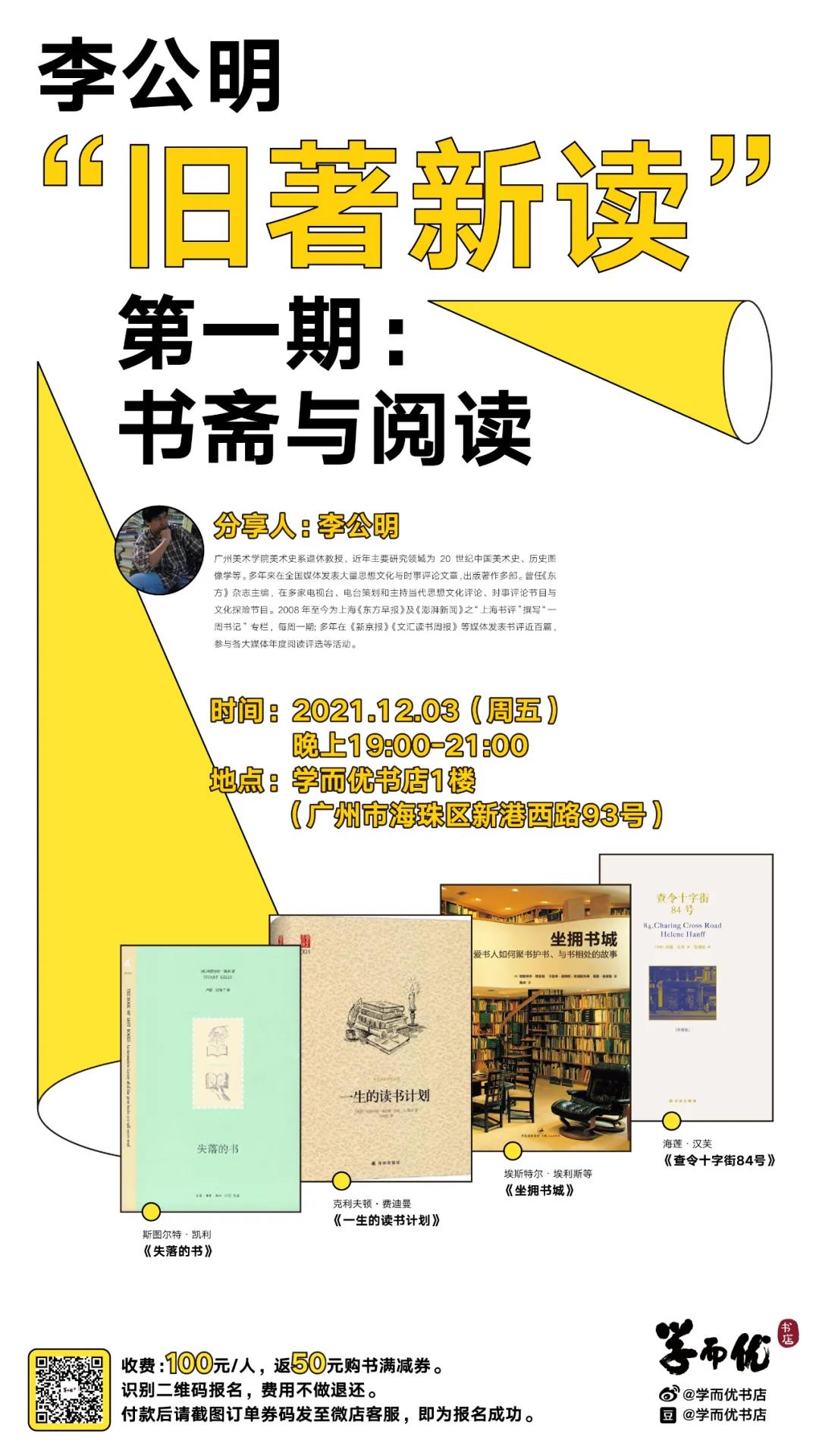
Guangzhou | Li Gongming’s "Old Works and New Reading" Phase I: Study and Reading
Time:December 3rd (Friday) 19:00-21:00
Location:Activity room on the 3rd floor of Xueeryou Bookstore, No.93 Xingang West Road, Haizhu District
Speaker:Li Gongming (Retired Professor, Art History Department, Guangzhou Academy of Fine Arts)
Li Gongming, who insisted on publishing a reading note every week in Shanghai Book Review for many years, not only tried his best to promote reading, but also looked forward to seamless communication and dialogue with people who love books. On Friday night, he will visit the excellent bookstore and share his reading with you.
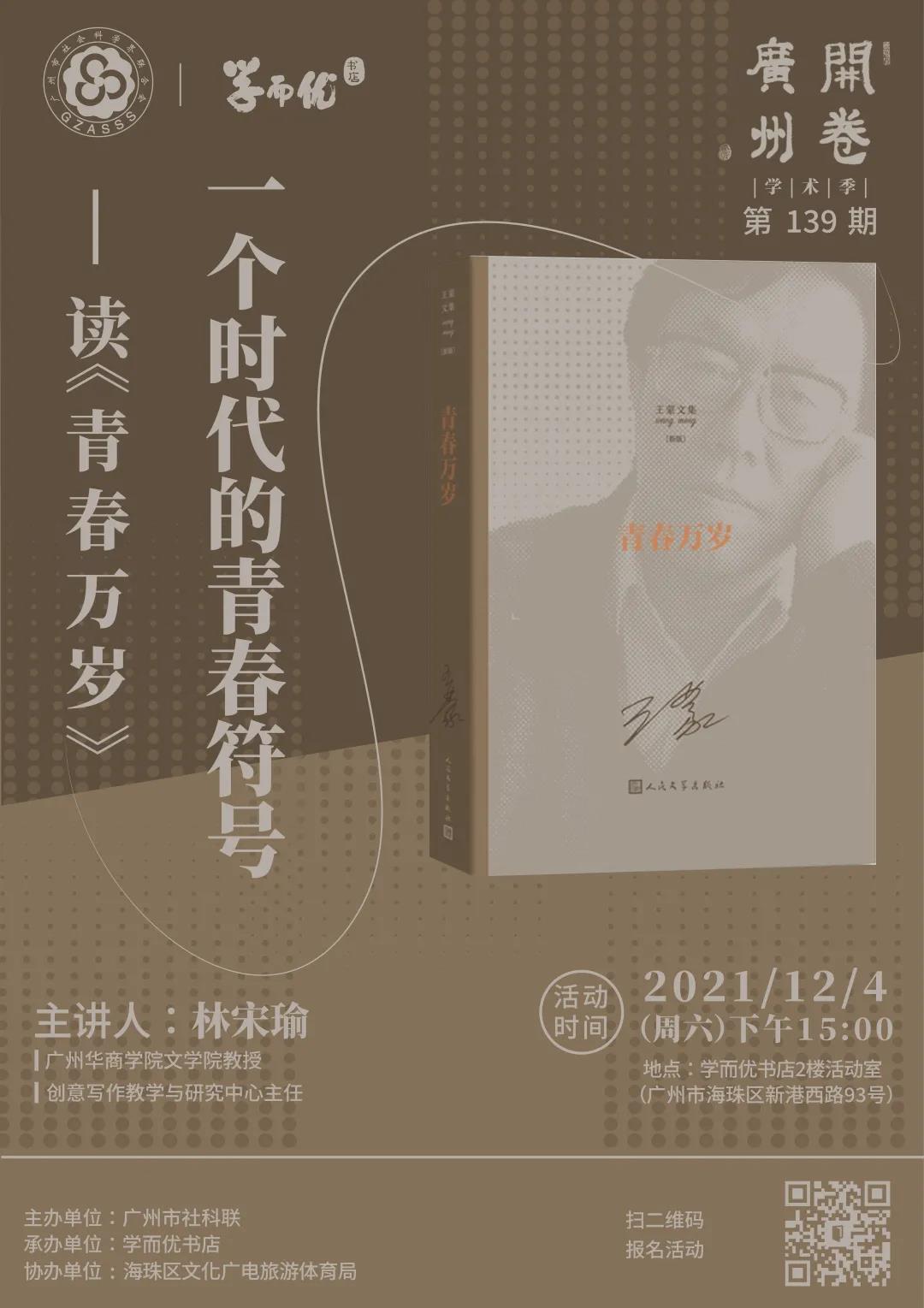
Guangzhou | The Symbol of Youth in an Era —— Reading Long Live Youth
Time:December 4th (Saturday) at 15:00.
Location:Activity room on the second floor of Xueeryou Bookstore, No.93 Xingang West Road, Haizhu District
Speaker:Lin Songyu (Professor, College of Literature, Guangzhou Huashang College)
Long live youth was written in the 1950s when Wang Meng was 19 years old. The novel has a certain influence among generations and is a symbol of youth for many people. This Saturday afternoon, we invited Lin Songyu, a professor at the College of Literature of Guangzhou Huashang University and director of the creative writing teaching and research center, to start with Long Live Youth, and to interpret the theme, literary elements and literary history significance of Long Live Youth as a red classic from the relationship between the ideological value of the text and the times, the artistic characteristics and the creative trend in the 1950s and 1960s, combined with Wang Meng’s creative experience.

Guangzhou | Apart from this life, we have no other time-sharing meeting of the new book "I love this crying romance"
Time:December 4th (Saturday) 15:00-17:00
Location:Multifunctional Hall, 6th Floor, Guangzhou Book Center, No.123 Tianhe Road, Tianhe District
Guest:Yan Ming (photographer), Mai Mai (writer, reading promoter)
With the artist’s sensitive and concerned eyes, the photographer Yan Ming found the stories that each of us in China had witnessed or experienced on a mountain, on a pile of walls, on the skirts of monks and on the silent faces of rural villagers, and gained dignity in this persistence. Twenty years of perseverance and hard work have brought fruitful results. These life experiences about traveling and meeting, fate and choice, conformity or self-reliance, as well as years of photographic thinking, are all condensed by him in his masterpiece "I love this crying romance". On December 4th, Yan Ming will take this masterpiece, visit Guangzhou Book Shopping Center Tianhe Store with writer and reading promoter Mai Mai, and talk about the story behind the picture frame and the little-known moments on the road of life.
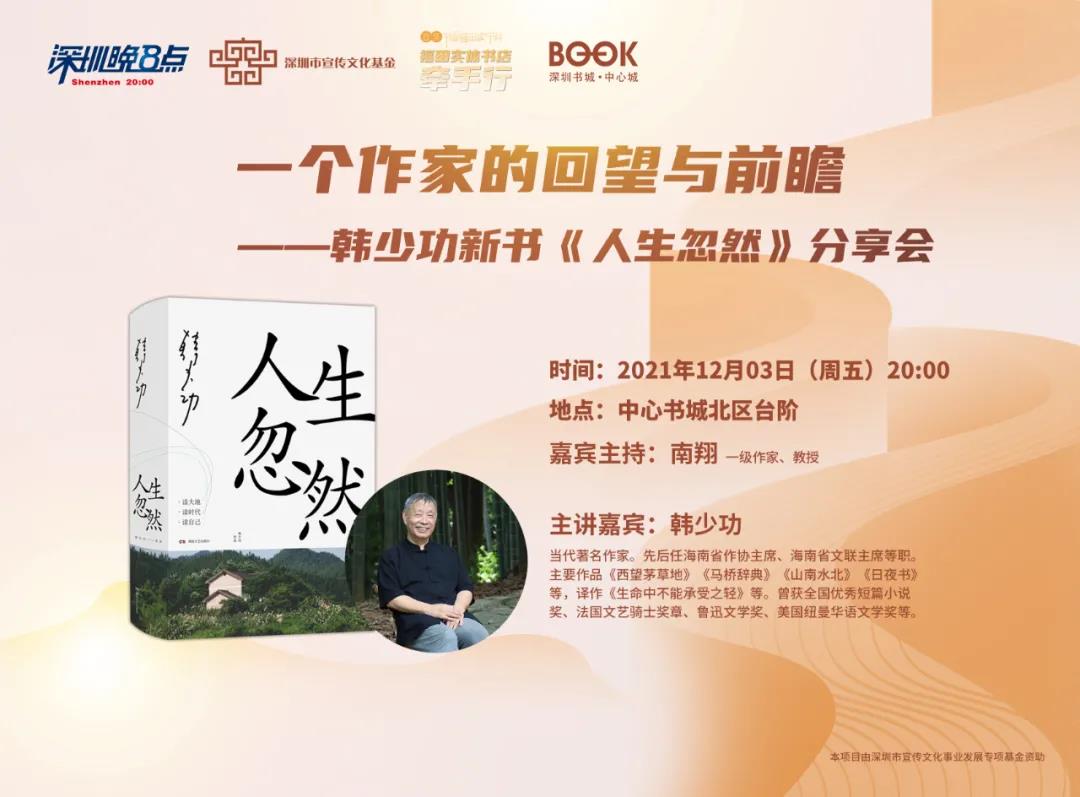
Shenzhen | A Writer’s Retrospect and Prospect —— Sharing Meeting of Han Shaogong’s New Book Life Suddenly
Time:December 3 (Friday) at 20:00
Location:2014 Fuzhongyi Road, Futian District, Shenzhen Center Bookstore North District, Big Steps
Speaker:Han Shaogong (writer)
Life Suddenly is a new collection of essays by the famous writer Han Shaogong, which responds to the questions of the times. On Friday night, Han Shaogong will come to Shenzhen with a new book to meet readers and share his writing and spiritual world.
Nanjing | The Sadness and Revival of Nihilism —— Martin Mittelmayer’s Hundred Years of Dadaism
Time:December 4th (Saturday) 14:00-15:30
Location:Golden Eagle Art Museum, 52nd floor, No.888 Yingtian Street, jianye district.
Guest:Liu Lizhong (poet and novelist) and Zhu Zhu (poet, curator and art critic)
Isn’t Dadaism a distorted pretense, a sharp incident, and a provocative nonsense? In short, this cultural nihility that made World War I possible is being impacted by many noises. In any case, Dadaism is first and foremost a movement of artists and life strategists, who have responded with enthusiasm and bravery to the world that is becoming more and more unclear. German writer Martin Mittelmayer shows the surprising practical significance of the answers to the above questions in the Hundred Years of Dadaism, and how Dadaism continues to influence contemporary culture. In August, 2021, the book A Hundred Years of Dadaism was published in Chinese. In this reading salon, we invited Liu Lizhong, a poet and novelist, and Zhu Zhu, a poet, curator and art critic, to talk about this book and communicate with the audience.
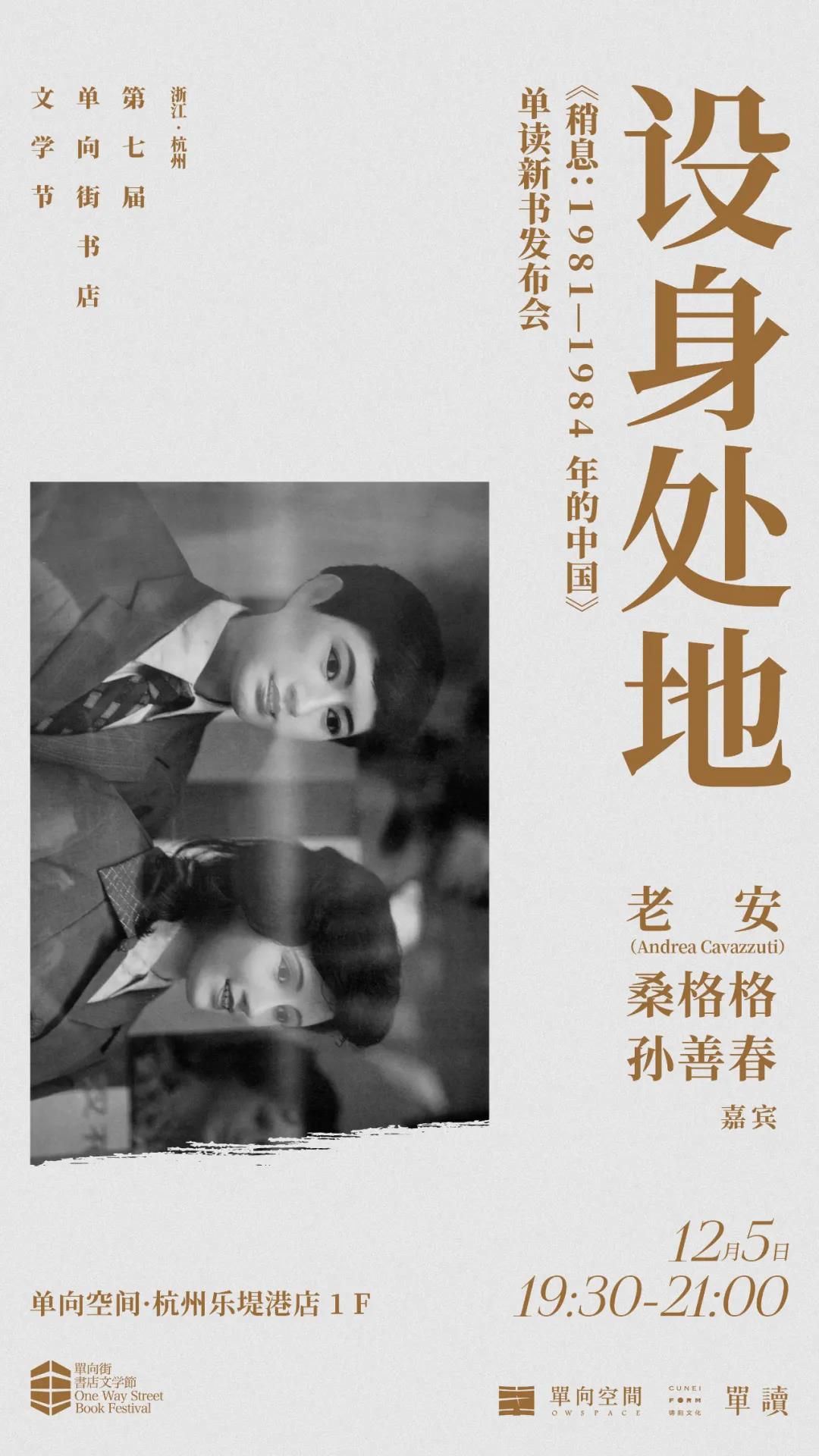
Hangzhou | Put yourself in the other’s shoes —— The release conference of the new book at ease: China from 1981 to 1984.
Time:December 5 (Sunday) 19:30-21:00
Location:One-way space 1F, B103, Zone B, Yuanyang Ledi Port, No.58 Lishui Road, Gongshu District
Guest:Lao An (photographer), Sang Gege (writer) and Sun Shanchun (professor of China Academy of Fine Arts)
Andrea Cavazzuti, an Italian photographer, has witnessed the development of contemporary art in China by shooting videos and documentaries since the late 1990s. At Rest: China from 1981 to 1984 is his first photo collection, which contains more than 190 frames of photos he took in China from 1981 to 1984. On the occasion of the publication of the book, we invited the writer Sang Gege and Professor Sun Shanchun from the Chinese Academy of Fine Arts to travel with Lao An in China today and yesterday, and between China and the world, in search of a new understanding of self and the other.
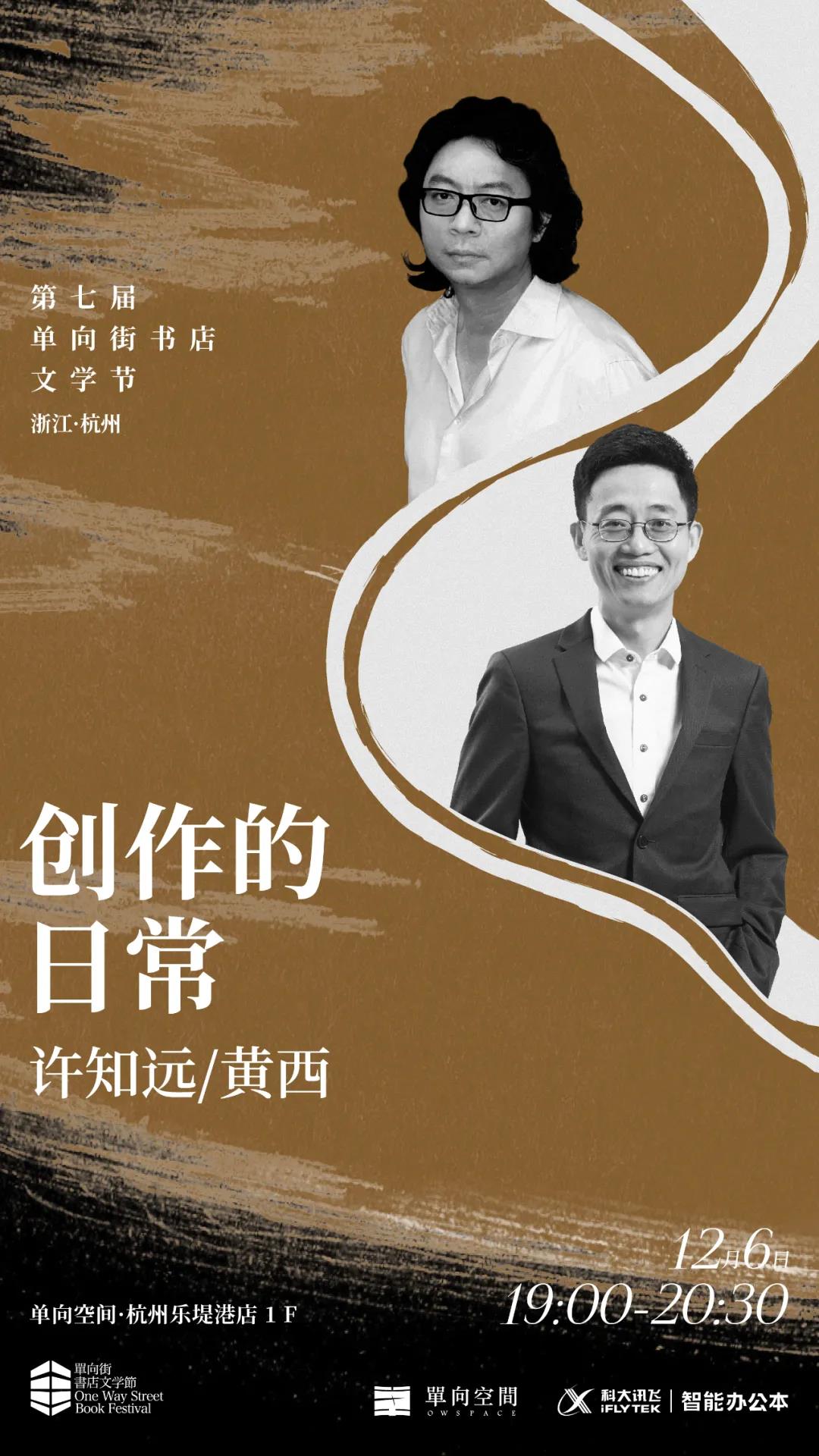
Hangzhou | the daily life of creation
Time:December 6 (Monday) 19:00-20:30
Location:One-way space 1F, B103, Zone B, Yuanyang Ledi Port, No.58 Lishui Road, Gongshu District
Guest:Xu Zhiyuan (writer) and Huang Xi (talk show actor)
Creation is not a privilege. In the past, we seized inspiration in language and writing. Now, the development of technology makes the flashes clearer. Grasping the "crystallization" in daily life, we can all be creative and become interesting, romantic and creative content creators. At the 7th One-way Street Literature Festival, Xu Zhiyuan, a writer and founder of One-way Space, and Huang Xi, a talk show actor and CCTV host, were invited to have a talk on "the daily life of creation", and to talk about how the "daydream" sheltering troubles in their hearts ignited the fire of creation, how to record their lives, keep unexpected thoughts, and how to find their inner direction and be determined to walk in the long journey of life.
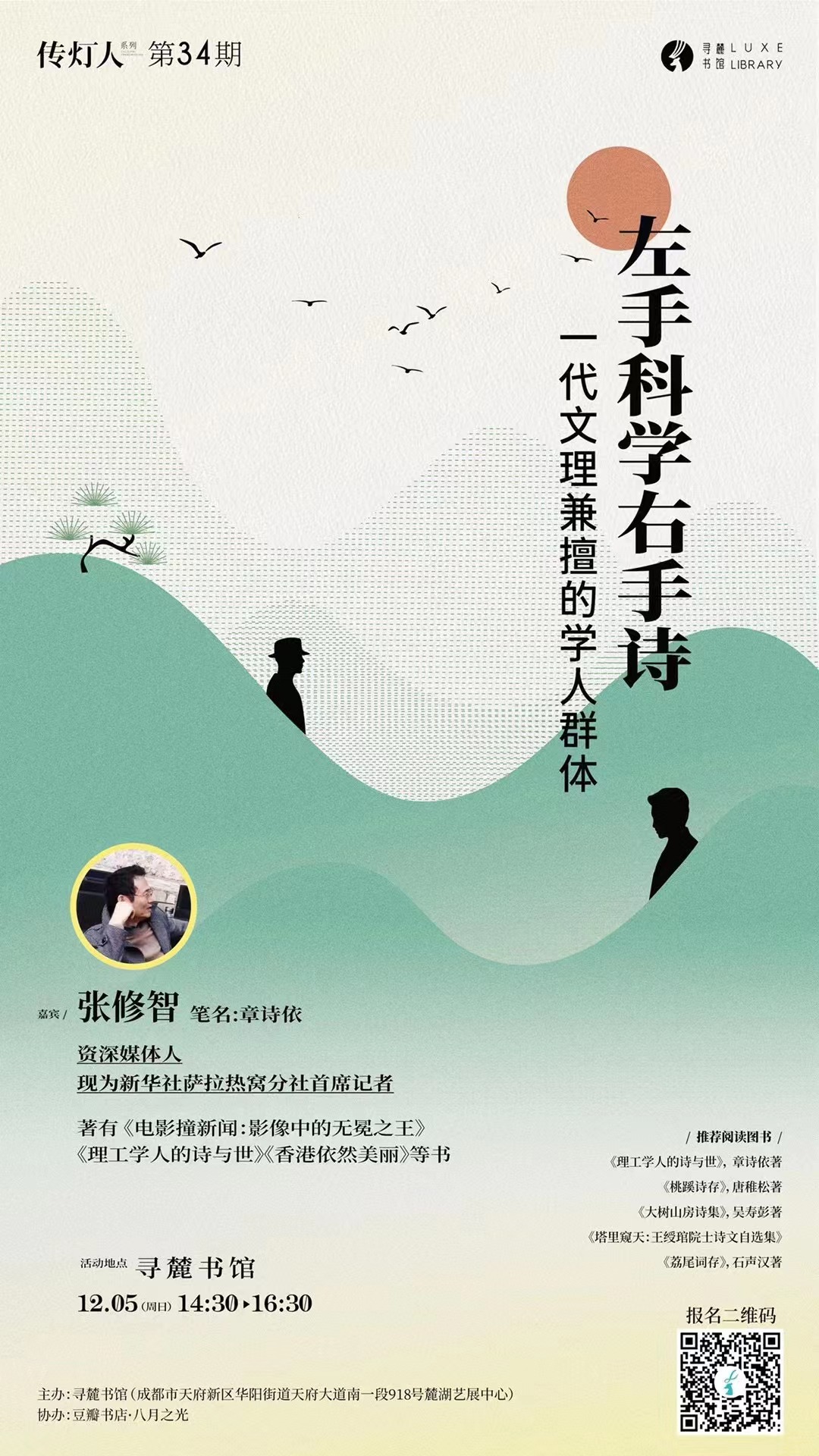
Chengdu | Left-handed Science and Right-handed Poetry —— A group of scholars who are good at both arts and sciences
Time:December 5 (Sunday) 14:30-16:30
Location:No.918, South Section of Tianfu Avenue, Tianfu New District, Luhu Eco-city Art Exhibition Center Xunlu Library
Speaker:Zhang Xiuzhi (media person)
Poets have never been a profession, so why not study both arts and sciences. On December 5 th, Zhang Xiuzhi, a senior media person and chief reporter of Xinhua News Agency Sarajevo Branch, shared with you the talents and stories of a generation of scholars who are good at arts and sciences.
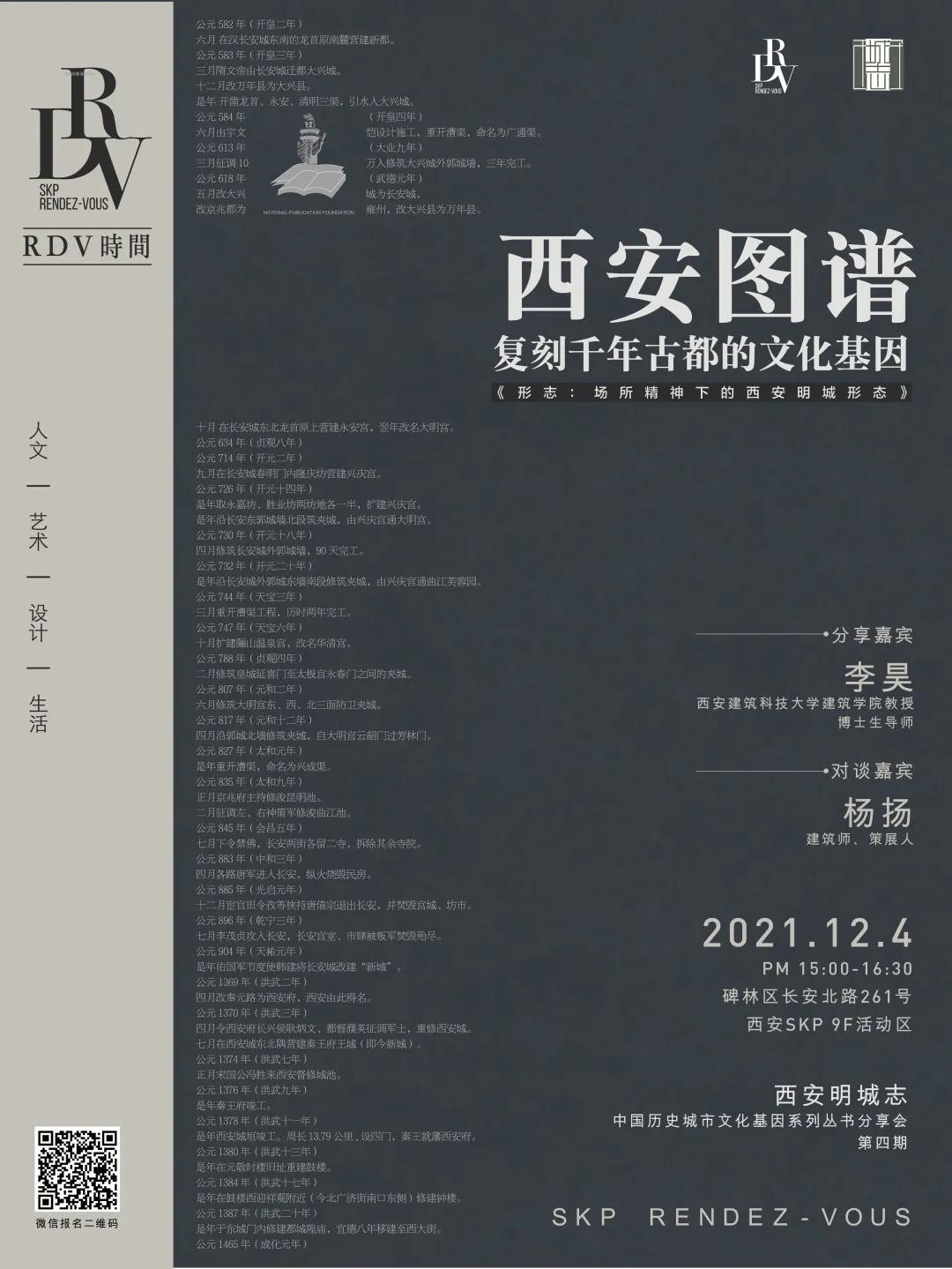
Xi ‘an | Atlas of Xi ‘an, Replicating the Cultural Genes of the Millennium Ancient Capital —— Sharing Meeting of the New Book "Xing Zhi: the Form of Xi ‘an Ming City under the Spirit of Place"
Time:December 4th (Saturday) 15:00-16:30
Location:SKP RENDEZ-VOUS, activity area, 9th floor, Xi ‘an SKP Shopping Center, No.261 Chang ‘an North Road, beilin district.
Guest:Li Hao (Professor and Doctoral Supervisor, School of Architecture, Xi ‘an University of Architecture and Technology) and Yang Yang (Architect and Curator)
On December 4th, Professor Li Hao from the School of Architecture of Xi ‘an University of Architecture and Technology and Master Yang Yang from the School of Architecture of Tsinghua University will visit SKP RENDEZ-VOUS in Xi ‘an to share the fourth series of "Xing Zhi: The Form of Xi ‘an Ming City in the Spirit of Place", and lead everyone into the Ming City of Xi ‘an to explore the hidden cultural genes of this ancient city with a thousand years.
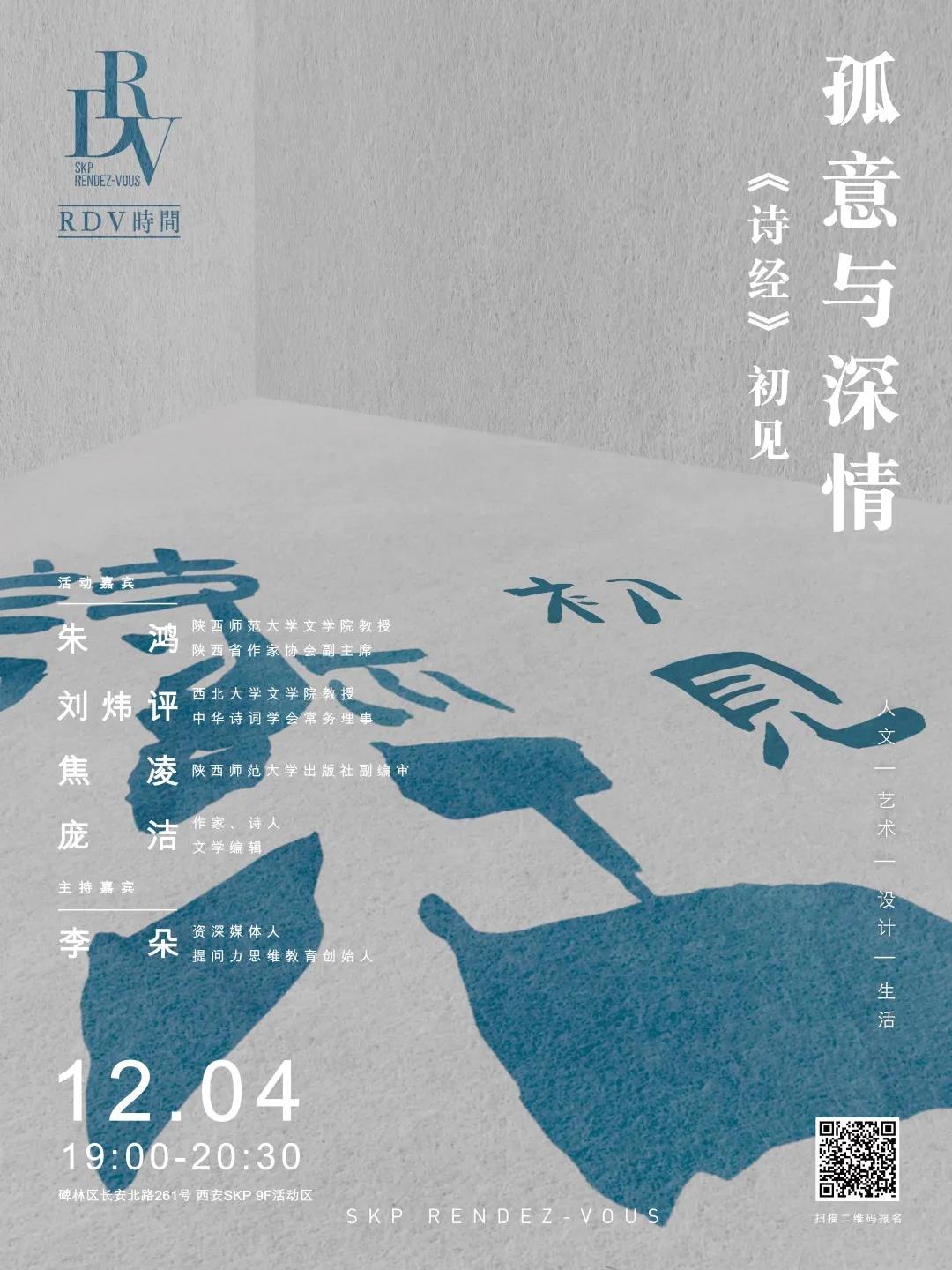
Xi ‘an | Loneliness and Affection: First Reading of The Book of Songs
Time:December 4th (Saturday) 19:00-20:30
Location:SKP RENDEZ-VOUS, activity area, 9th floor, Xi ‘an SKP Shopping Center, No.261 Chang ‘an North Road, beilin district.
Guest:Zhu Hong (Professor of College of Literature, Shaanxi Normal University), Liu Weiping (Professor of College of Literature, Northwest University), Jiao Ling (Deputy Editor of Shaanxi Normal University Press), Pang Jie (writer, poet, literary editor)
For example, Pang Jie said frankly: "I want to sort out the love in the Book of Songs and expand it in the contemporary era, and see those distant sorrows, those loneliness and affection, and the telepathy of people today; I want to sort out the plants in the Book of Songs, see how many they have disappeared, and see what they look like if they are still alive today; I also want to sort out the pain and hesitation, hearty and awakening in the era of the Book of Songs … "The so-called" Book of Songs "is actually an old acquaintance. On the evening of December 4th, we might as well walk into the Book of Songs together and re-understand the "loneliness" and "affection" that have been circulating since 3,000 years ago …
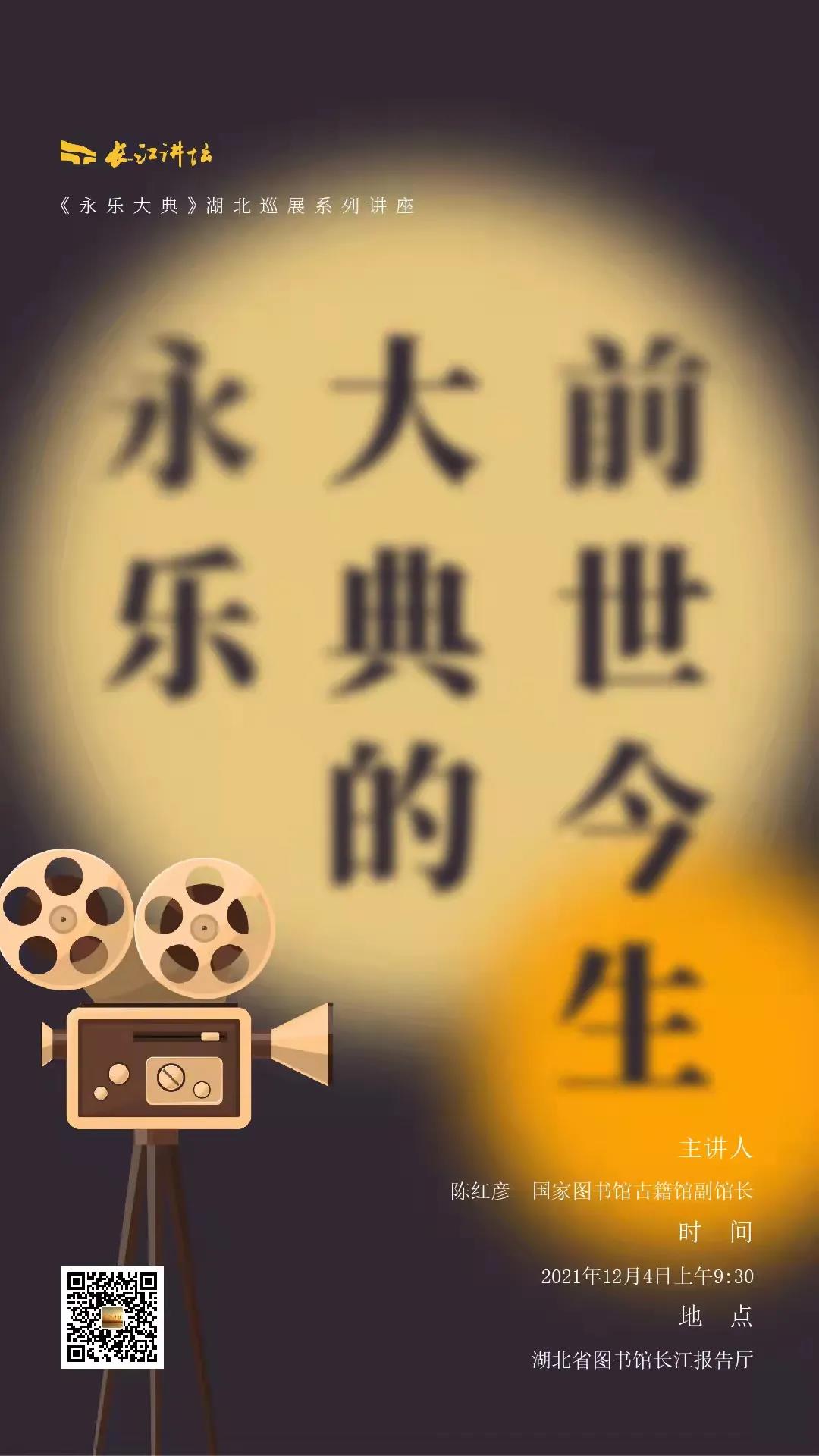
Wuhan | past lives of Yongle Ceremony
Time:December 4th (Saturday) at 9:30.
Location:Changjiang lecture hall of Hubei Provincial Library, No.25 Gongzheng Road, Wuchang District
Speaker: Chen Hongyan (Deputy Director of the National Library of Ancient Books)
As the fourth college collection of the National Library, the collection and preservation process of Yongle Dadian in the National Library is full of legends. In this lecture, the speaker will share with you the past lives of Yongle Dadian from the following aspects: its writing process, its compiling method, its value, its dispersion and aggregation, its protection and restoration, and its publication and dissemination.
The Significance of Wuhan Yongle Grand Ceremony in the History of World Culture
Time:December 9 (Thursday) at 10:40.
Location:Changjiang lecture hall of Hubei Provincial Library, No.25 Gongzheng Road, Wuchang District
Speaker:Xiong Zhaozheng (writer, literary historian)
"Yongle Dadian" from the pre-Qin Dynasty to the early Ming Dynasty is all-encompassing. The Concise Encyclopedia of Britain says that the Yongle Grand Ceremony is "probably the largest encyclopedia in the world", and it is more than 300 years earlier than the encyclopedia edited by Diderot of France and the famous Encyclopedia Britannica, so the Yongle Grand Ceremony is not only a treasure of China’s cultural heritage, but also enjoys a high status in the world cultural history.






